
IMPROVING LIVES EVERY DAY
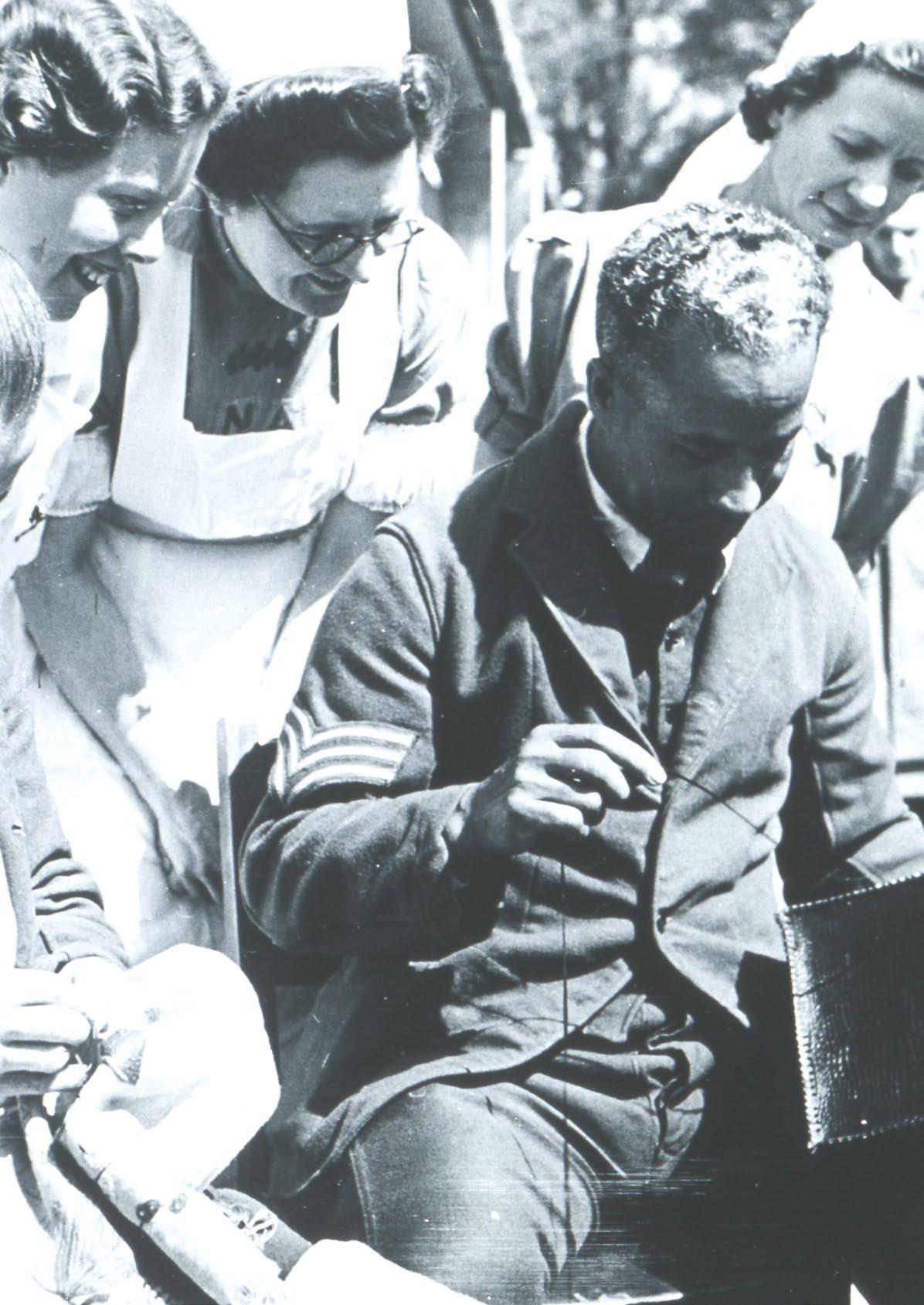
RBLI 100 YEARS




IMPROVING LIVES EVERY DAY

RBLI 100 YEARS


marks the 100th anniversary of Royal British Legion Industries.
This charity began when a small group of committed and insightful visionaries realised that our veterans needed more than nursing care.
As people who had pushed themselves to their mental and physical limits, and committed themselves to a cause whatever its outcome for them, our founders realised that forces veterans need purpose, meaningful activity, and new skills.
We are delighted to report that 100 years on RBLI remains at the forefront of holistic care, and is still today able to combine excellent care with practical help, emotional support, activity, skill development and outstanding employability opportunities.
Our priority remains veterans of all three services and individuals with multiple needs and we know from our long experience and track record that given opportunities to work on multiple issues at once many people can benefit hugely, and much more quickly working in this way. Too many vulnerable people are forced to wait months for adapted housing before they can start job hunting, or advised to tackle their mental health before even thinking about working again. Too many older veterans are held back from any social life because they are not being supported to maintain their physical mobility. Like the founders of RBLI, this is not our approach; we are able to provide different accommodation options at different times, and can do much more to help our beneficiaries remain active, and look forward, whatever their age or barriers to inclusion.
During this milestone Centenary year RBLI is looking forward to our next 100 years, and the kind of charity we want and need to be to help veterans of our armed forces, and people with disabilities, to thrive in 21st century society.
We are able to report that our Centenary Village Fundraising campaign gained real momentum during the year and our Trustees have given RBLI the green light to commence construction works. The Centenary Village development will bring a unique and powerful mix of facilities and services, adapted apartments, assisted living and new family homes as well as a Community Centre with a fully accessible new gym. We expect to see the first buildings completing as early as 2020. Some of our campaign supporters and partners are mentioned in this report and we are proud to be able to showcase our multi-layered strategic partnerships during our Centenary.
During this year the charity also moved forward with the creation of our brand new Extra Care suites which completes the full care pathway on our unique Village. These new facilities will make it much easier for our beneficiaries to transition towards higher dependency care if need be, or towards assisted living when recovering from serious illness. It means that we are able to support transitions more quickly and more effectively – keeping in place many consistent carers, peer support relationships, and activities even when health situations change.
RBLI’s model, which combines the full care pathway with employability, mental health and truly holistic welfare support, is able to help people build their independence more quickly.
The model is also replicable and this year RBLI established, in partnership with renowned care Charity Erskine, a mixed Village and social enterprise in Glasgow.
As well as Scotland’s Bravest Manufacturing Co. the Erskine Village is now home to a new activity centre, and mixed accommodation so that veterans of all ages can take part in meaningful activities, across a variety of supported settings.
Scotland’s Bravest Manufacturing Co. is helping Scottish veterans with severe disabilities to gain truly marketable work experience, within a unique 18-month, personal development and learning programme, and with clear “move on” goals.
The replication of our integrated model in Scotland coincides with a very strong year in our Kent social enterprise Britain’s Bravest Manufacturing Co. with its best commercial performance ever. We can only provide work and work placements for people with disabilities, learning difficulties, and ongoing health problems if we can win commercial business, and during this year our sales were strong across all product areas.
Within our Employment Solutions activity we have been able to reach 16,000 beneficiaries through our outreach in deprived towns and coastal communities.
This activity has had a huge impact on people who are very far from the labour market; families who are living with inter-generational unemployment, and communities where 25% are long-term unemployed. RBLI’s programmes in these areas are breaking entrenched cycles of disadvantage, and furthermore, managing to do this on a large scale to impact on communities as well as individual lives.
Similarly RBLI’s acclaimed LifeWorks programme which has now reached well over 1,000 unemployed veterans continues to build its footprint. LifeWorks is also reaching the UK’s most deprived communities and is working with partners to deliver in Wales, the North and Scotland, successfully helping those who are struggling to manage ongoing health and mental health conditions return to the labour market.
The programme is also very highly valued by the MoD who are pushing RBLI to use our expertise to support large numbers of service personnel relocating from Germany, and military spouses who are negatively impacted by constant relocation; as a result the LifeWorks team is proud to be delivering the programme internationally.
Further develop thriving communities for those veterans who are most in need from across the UK with integrated services of social care, health care, employment support and accommodation. Be the catalyst for replication of effective integration across the UK.
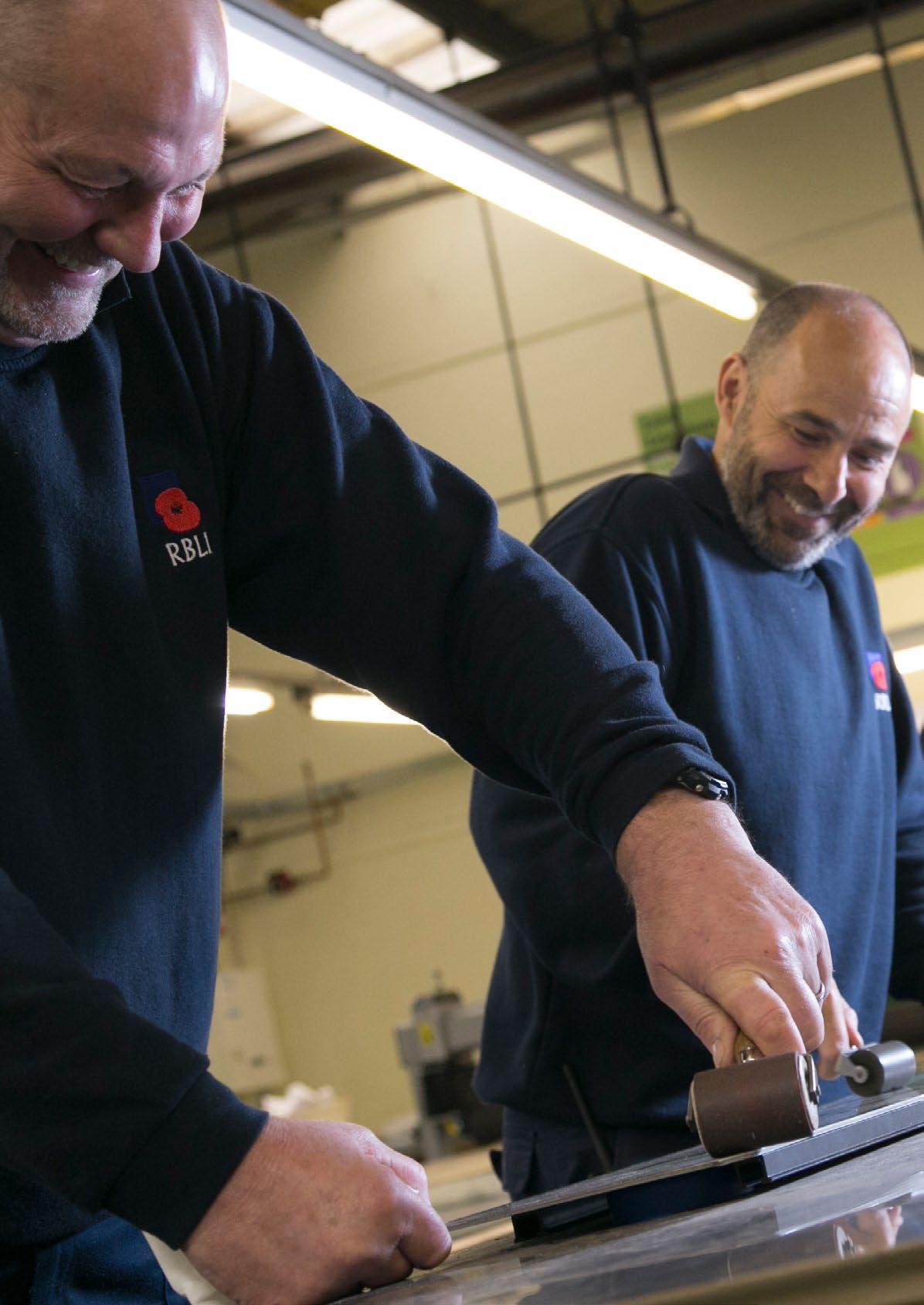
Build a resilient work, health and training services business, “best in class” at working with people with disabilities, health conditions and those furthest from the workplace.
Continue developing and delivering first class preemployment support for the Armed Forces community, centred on sustainable and relevant variants of LifeWorks programmes across the whole of the UK.

Build a 21st century social enterprise and employment academy.
Secure funding, sponsorship, awareness, and profile, to maximise the opportunities for our beneficiaries.
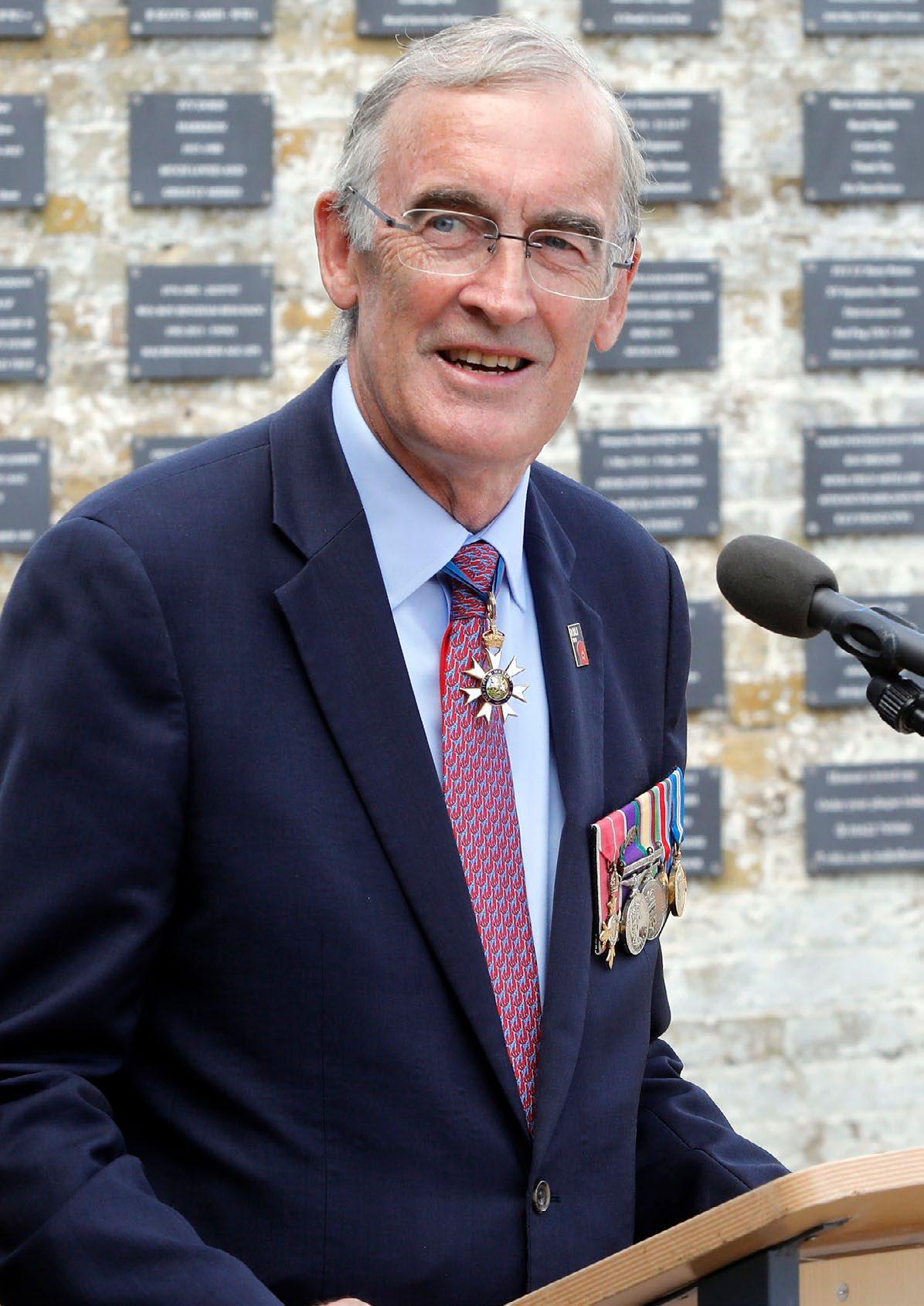
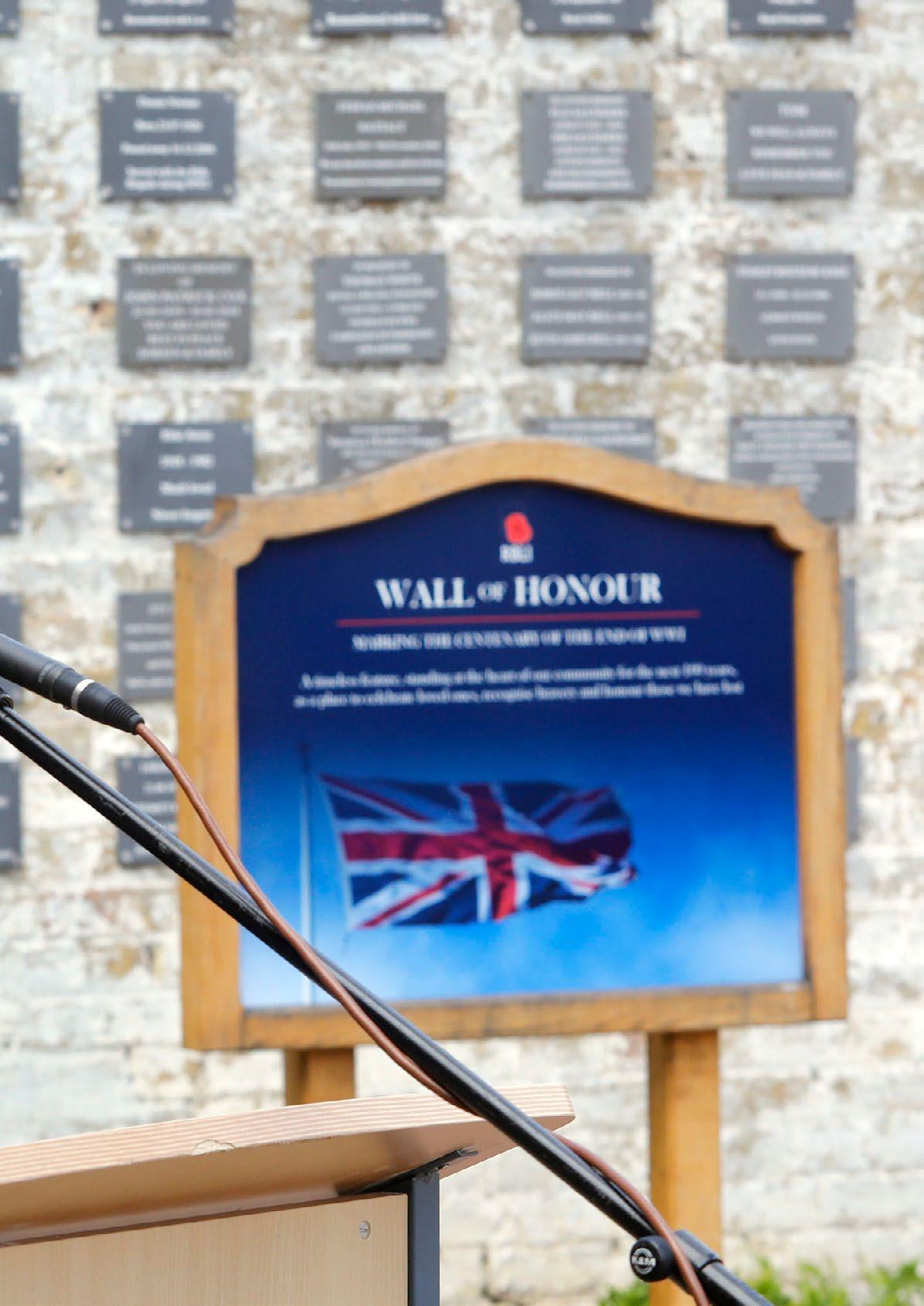
RBLI’s milestone Centenary year is a perfect time to celebrate the many partnerships that make our holistic services and our impactful work possible. It is true to say that we are only able to be the charity we want and need to be through collaboration. Britain’s Bravest Manufacturing Co. would not have had the excellent year it had without so many companies in the service sector making the important decision to “buy social”.
We have also had key partnerships with There But Not There, and The Royal British Legion on major commemorative projects manufacturing WWI Tommies and the tri-service silent soldiers which have been used UK-wide to mark the anniversary of the end of WWI. We have also been laying the foundations, with our partner Morrisons, for a new product to appear in their stores.
The uplift in performance that we saw at the end of last financial year continued for Britain’s Bravest Manufacturing Co. and we have seen more customers and more volume. Our signs department increased performance by 12% and began diversification into non-reflective signs such as hoardings. Our wood performance was up 18% with new customers and increased fruit bin sales.
On our Kent Village we have been delighted to work closely with many partners to deliver our STEP IN model of holistic care and would not have been able to support so many veterans to create positive daily routines without West Kent CCG, PTSD Resolutions, CGL Maidstone, Dementia Care Matters/Oomph, and Leonard Cheshire. We have also established exciting new partnerships with The Jubilee Sailing Trust and Mid Kent Mind to help veterans with their confidence, social relationships, fitness and active living. As a result disadvantaged veterans were able to take part in the Round Britain Sailing Challenge, and a 150 mile cycle challenge to Ypres.
With support from ABF The Soldiers’ Charity, last year we were able to begin a new partnership with Great Comp Garden, giving veterans structured work placements and new skills in horticulture, landscaping and project management.
RBLI’s STEP IN programme, which is able to combine support with health, mental health, housing, welfare, meaningful activities, social participation, and employability won increased recognition last year.
Several prestigious trusts and foundations who support the most pioneering services for older people and people with severe disabilities have recognised the power of our integrated model. These include The Garfield Weston Foundation, The Sir Jules Thorn Charitable Trust and The Wolfson Foundation. Additionally NHS Leaders and Commissioners, as well as senior NHS nurses who are also working to integrate active living with nursing care have visited to see how they can replicate our independence outcomes.
In December we were visited by the Secretary of State for Health and Social Care Matt Hancock MP who specifically praised the way RBLI is able to integrate mental health support and employability. With support from our Campaign Patron, General Sir Gordon Messenger KCB DSO* OBE, RBLI’s Centenary Village fundraising campaign has been able to gain real momentum.
Barratt Developments are a major supporter of the Centenary Village, and not just financially. This is a truly multilayered partnership with social value purchasing, employee engagement, veteran employment pathways, and exciting projects in the graduate scheme. The Barratt Developments graduates
have been actively fundraising for a new dementia garden which they will deliver in collaboration with leading garden designer Jo Thompson.
RBLI also has major strategic partnerships with Greenwich Hospital, ABF The Soldiers’ Charity and Annington Homes who are working closely with us to deliver national employability support as well as the Centenary Village expansion.
RBLI has also received an incredible welcome for our start-up enterprise Scotland’s Bravest Manufacturing Co. which we launched in collaboration with the renowned care charity Erskine.
The new factory opened in May 2018 and is already employing disadvantaged and disabled veterans, who are gaining marketable skills and using state of the art manufacturing machinery.
The structured 18-month learning programme has been developed in collaboration with sector partners and our advisory board with a clear focus on, and pathways to, future commercial employment.

Caption to go here...........
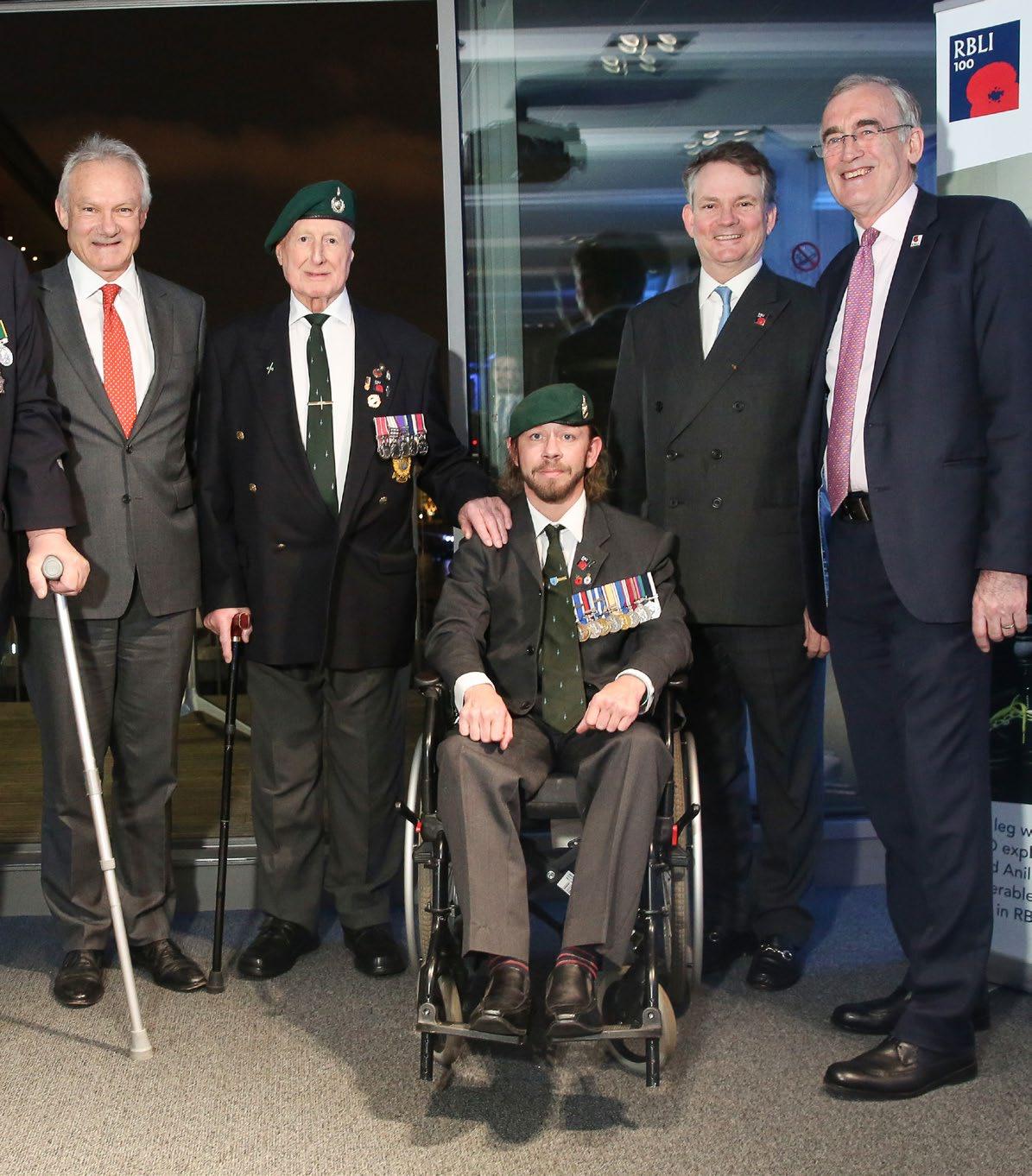
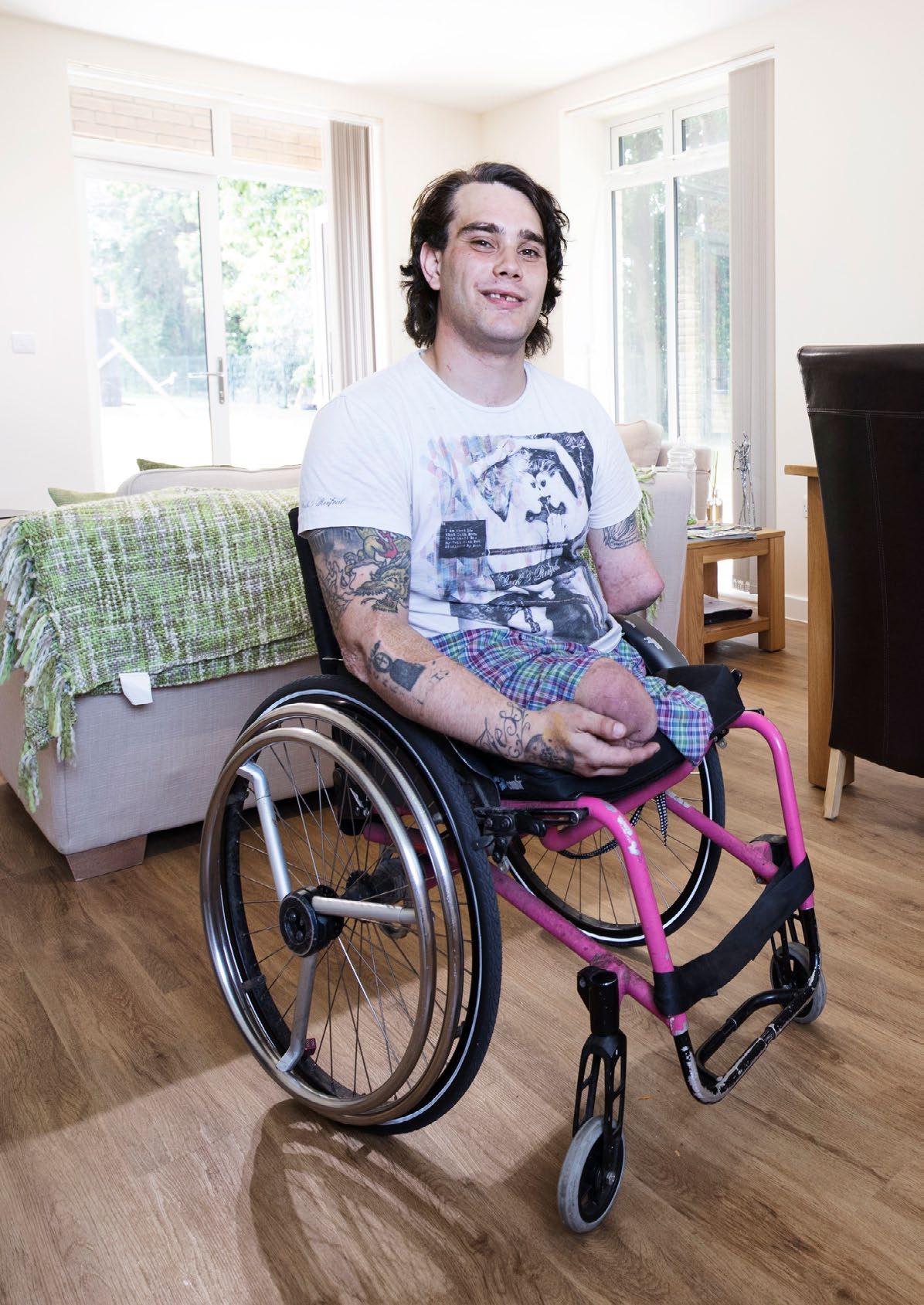
All of this activity, collaboration, and incredible support from RBLI’s donors and partners means that RBLI is now laying exactly the right foundations to be here for vulnerable people for another century. RBLI is proud to be a practical delivery charity and we are very aware of the needs we can, and must, address.
The needs amongst the UK’s older population are growing as so many people are living with multiple and complex health conditions. This is also a growing population. RBLI is putting the best facilities in place for older people, and is delivering the complete care pathway in one location, and working harder than ever, through our pioneering STEP IN programme to enable more active lives for the longest possible time.
The veterans of the most recent conflicts, especially those who are coping with life-changing injuries, PTSD and severe disabilities, will be of working age for many decades to come. We will be there for them.

Stephen Kingsman DL CHAIRMAN
12th July 2019
With our new Centenary Village development, and STEP IN, we will be able to support hundreds more veterans towards independent living and employment, whatever their individual challenges and barriers to inclusion.
We also know we need to be here for families, who are impacted so painfully by the national pressure on social housing. This is why our priority remains our Centenary Village expansion and the remaining £7m we need to raise to complete the project. Organising the “breaking ground” ceremony within our Centenary year has been the key goal for our charity as we want to commit publicly to be here for the nation’s most disadvantaged veterans for decades to come.

Steve Sherry CMG OBE CHIEF EXECUTIVE
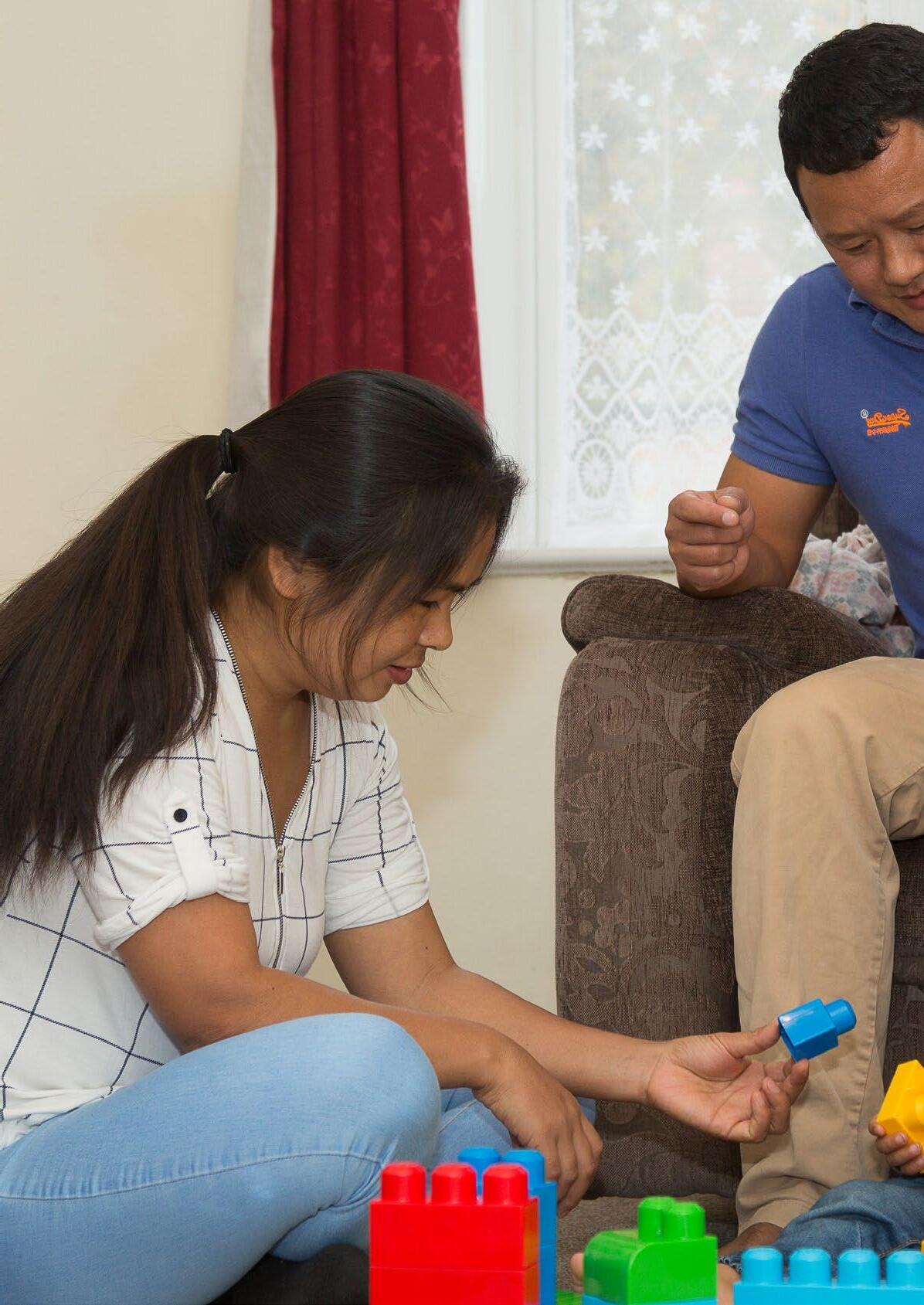
With an aim of improving lives every day, RBLI works across the UK to help members of the Armed Forces community, people with disabilities and people who are unemployed.
Whether it is providing a homeless veteran with emergency accommodation, helping someone into work after 20 years of unemployment or ensuring someone has the support they need to stay in a role when their health condition deteriorates, our teams are making a difference.
All this support is provided by our core divisions, assisted by our corporate services and strategic development teams.

Focuses on providing homes to Armed Forces veterans and their families. In addition to emergency accommodation, we also provide family housing, specially adapted homes for wounded veterans, an assisted living scheme and a high-dependency nursing home. Residents are supported by our welfare team. Via our holistic health and social care model, they can access help to improve their independence, with benefits support, advice on managing health conditions and more.



(BBMC) is RBLI’s social enterprise providing vital employment to Armed Forces veterans and people with disabilities. The employment we provide gives them the necessary skills and support they need to regain their independence. Their skills and work ethic mean we can manufacture high quality products and deliver exceptional services, including signs, wooden products and print, mail and fulfilment.
Supports people with disabilities across Great Britain, ensuring they are not disadvantaged when doing their job. It also provides employment support for veterans who are struggling on civvy street. In Kent and Sussex, the teams work to support local people gain the skills they need for work, as well as helping them find sustainable, relevant employment or volunteering opportunities.
(SBMC) is our new social enterprise currently being developed near Glasgow in Scotland. A project supported by fellow military charity, Erskine, it will work in a similar way to BBMC but all manufacturing staff will be Armed Forces veterans. The teams will provide a variety of services and manufacture a number of different products, enabling them to gain new skills in a civilian working environment.
In 2018/19, we made major investements into several capital projects, to improve facilites lives and opportunities for veterans and their families.
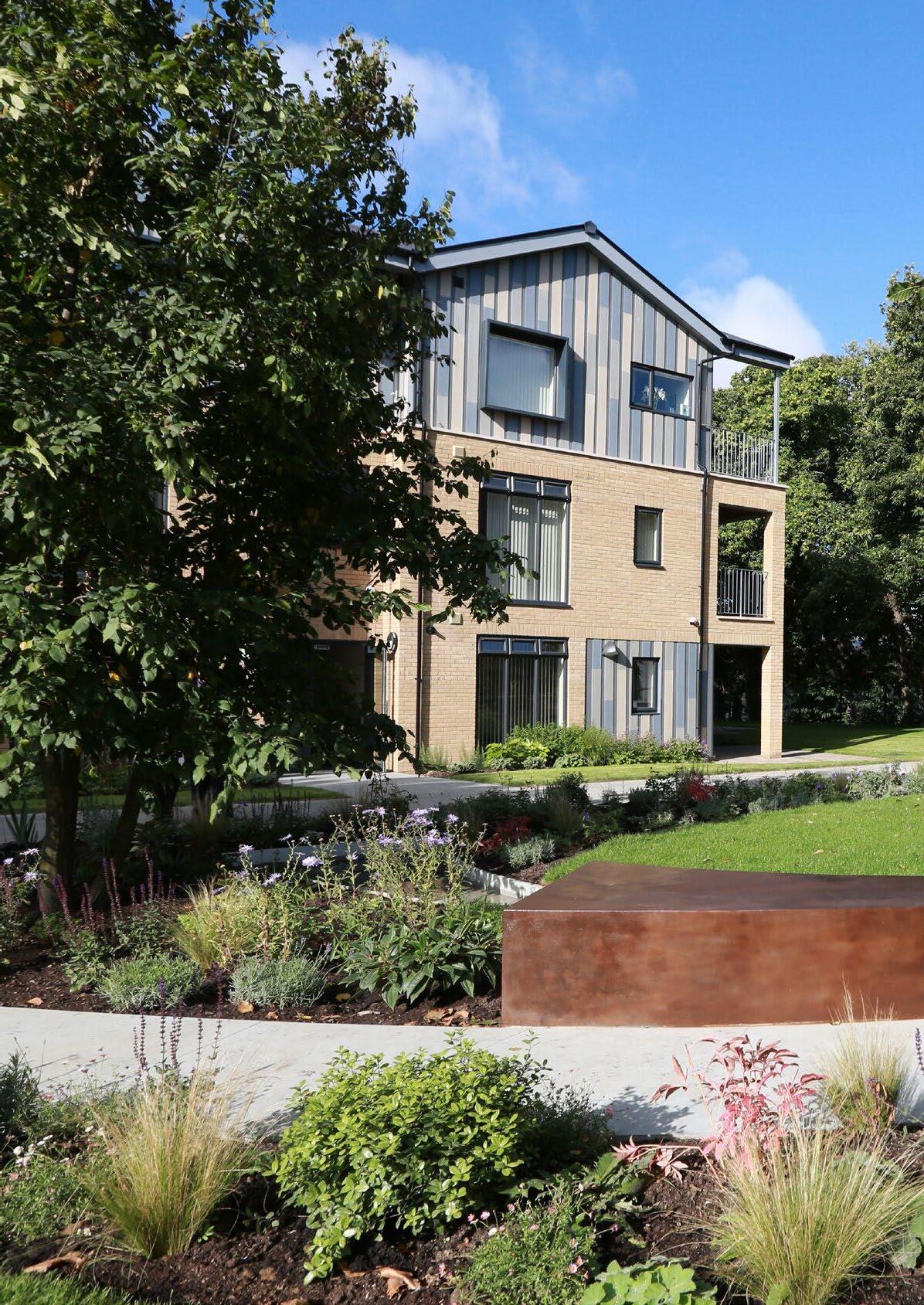
£8.7m
£5.1m on our manufacturing social enterprises welfare to work programmes across the UK

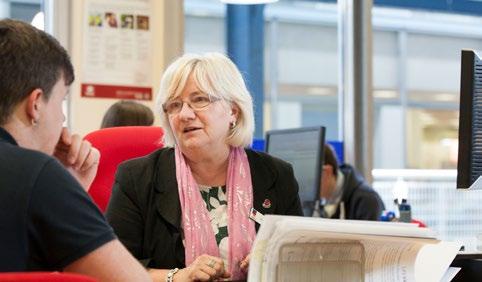
prioritising care and welfare at Ayleseford
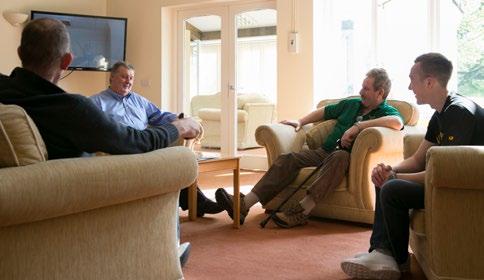
£2m on our New Care facility with 15 new suites and Day Care facilities
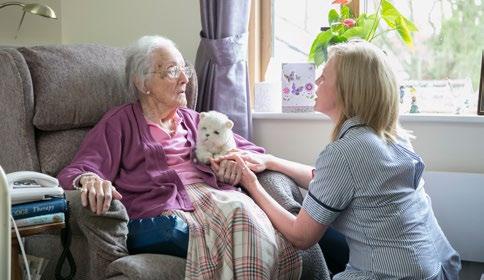
£502k
on new machinery for BBMC & SBMC, fixtures and fittings and refurbishments across the RBLI Village
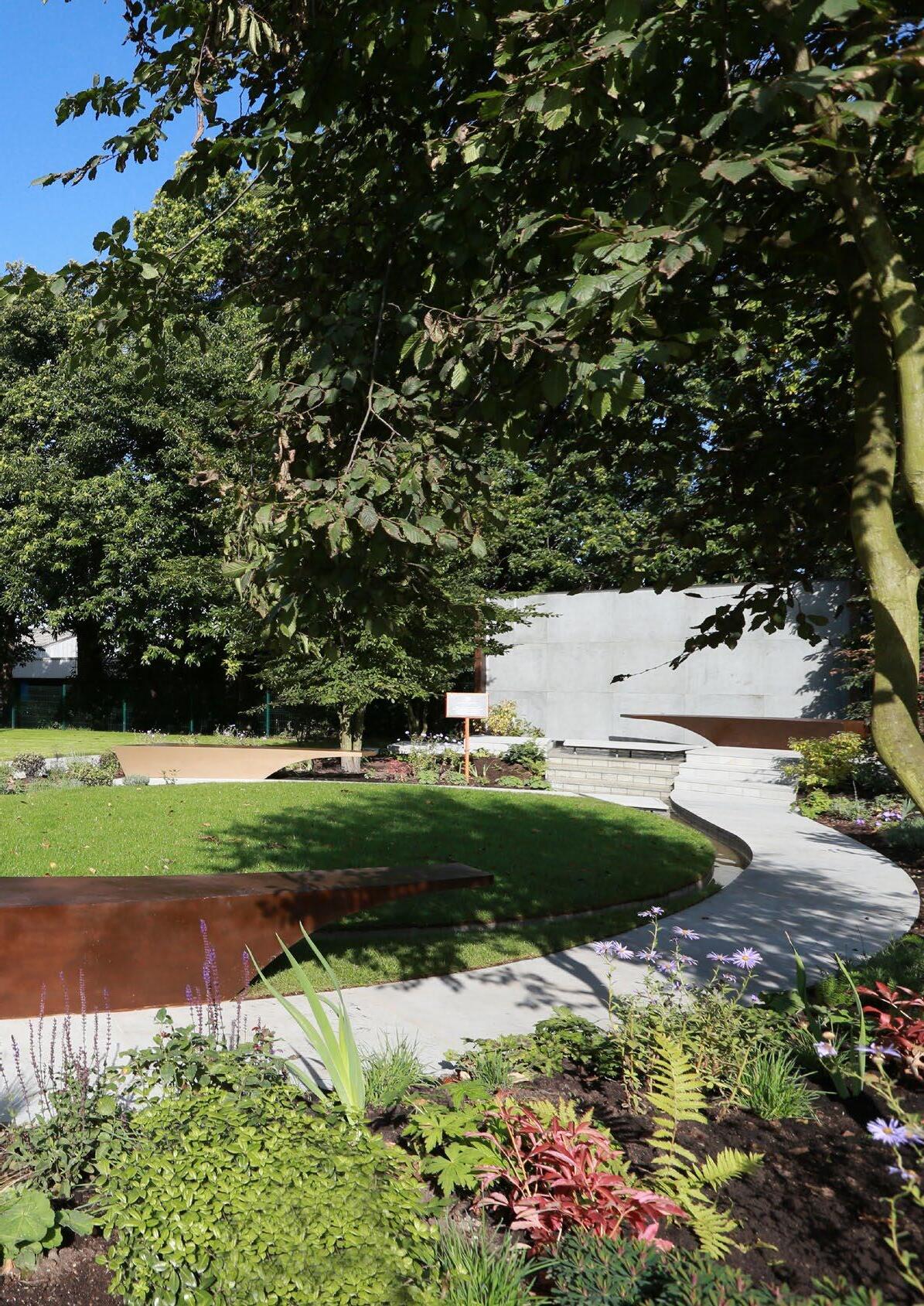
£5.7m on ecological surveys, architect fees, and land preparation for the new Centenary Village expansion
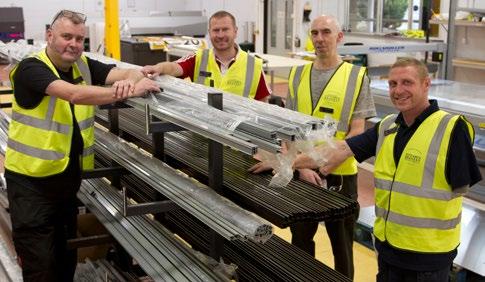
£320k
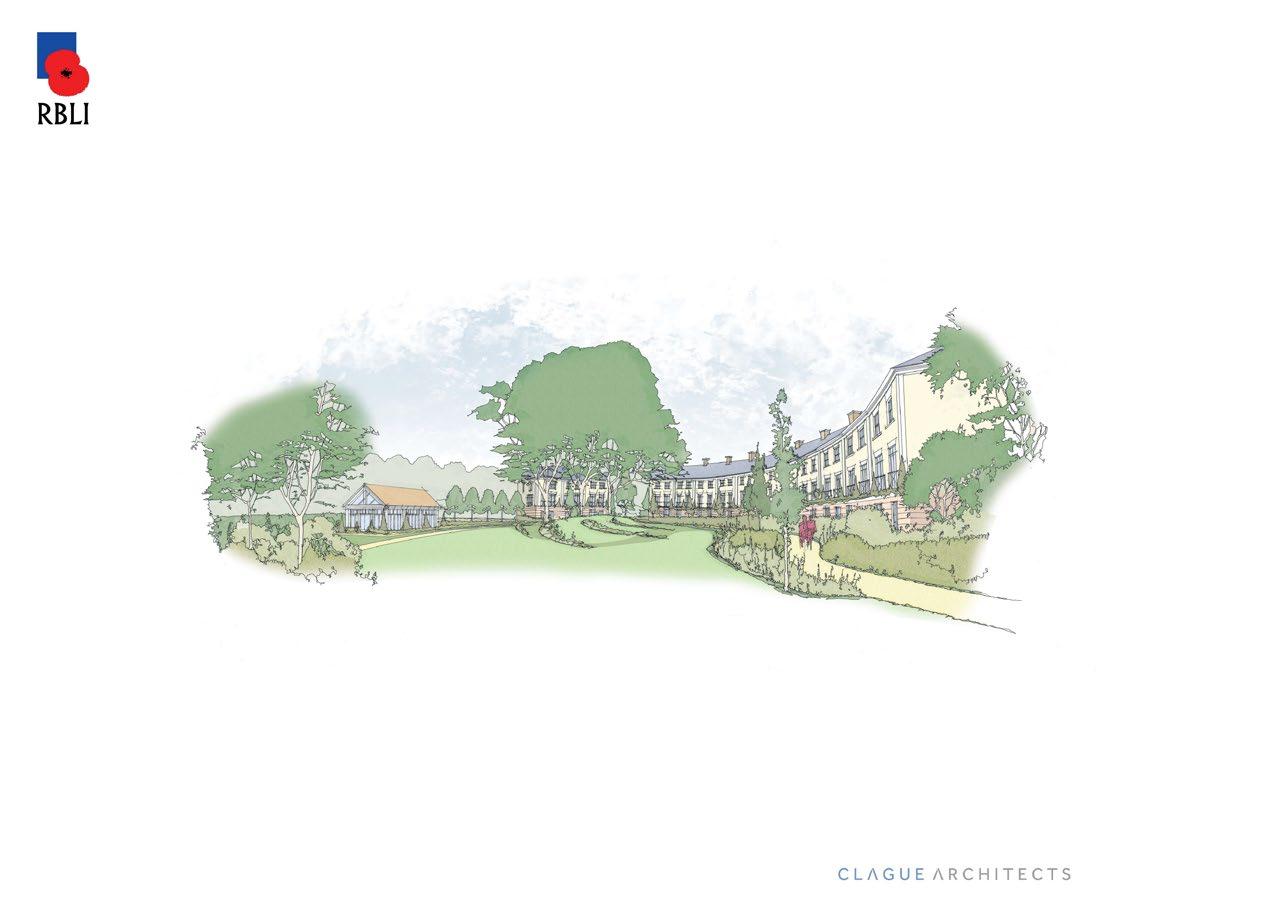
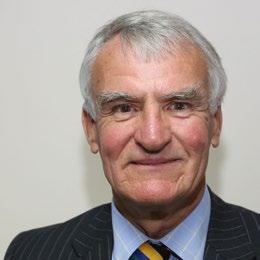
STEPHEN KINGSMAN DL CHAIRMAN
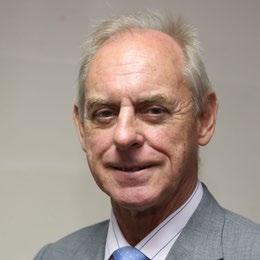
FRANK MARTIN DL VICE CHAIRMAN

BRIGADIER TONY KERR OBE

NADRA AHMED OBE DL
Stephen is a former Chairman of the Denne Construction Group, which specialises in delivering affordable housing, regeneration schemes and care facilities, much like those offered by RBLI.
His extensive history in charitable service has seen him in the role of Chairman of Canterbury Further Education College, Chairman of Kent Training and Enterprise Council and as an RBLI trustee for four years preceding his election to Chair.
Frank is a Deputy Lieutenant for Kent and was formerly Chief Executive of Hornby Plc. He is currently Deputy Chairman of the Dover Harbour Board and Chairman of Governors/Pro Chancellor of Canterbury Christ Church University.
Tony rose to the ranks of Brigadier in the British Army. Now retired, he has spent many years as a trustee of RBLI. He is also currently President of The Royal British Legion Village Branch at Aylesford.
Nadra is a Deputy Lieutenant for Kent and is Chairman of the National Care Association. In 2006, she gained an OBE for her work in social care over 30 years. She is also Vice President of Hi Kent and Vice President of the Kent Care Homes Association.




Blair is Chairman and Partner at Gulland Solicitors and has been a practicing solicitor for over 40 years.
He is also a Trustee of many other charities including Benenden Almhouse Charities, the Michael Yoakley Charity and the Kent Community Foundation.
Kathryn is a chartered accountant and non-executive director, mainly in the public sector or for public interest entities. Among other appointments, she is on the board of Companies House, the UK Supreme Court and Highways England.
She is also on the External Audit Committee of the IMF.
David rose to the ranks of Brigadier in the British Army before becoming COO of international Executive Search firm, Hanover Matrix. He then founded the Benchmark Search Group in 2002, which helps senior Service personnel transition into successful civilian careers.
Desmond is a Deputy Lieutenant for Kent and a Vice President of Demelza Hospice Care for Children, where he served as a trustee for more than a decade.
He also founded Lorenden Preparatory School and helped establish the Isle of Sheppey Academy.
In September 2018, RBLI welcomed Mr A Watson and Mr S Mason to the Board of Trustees. Kate Bosley stepped down in September 2018 and we would like to thank her for her service.

Brigadier Steve Sherry has been Chief Executive of RBLI since April 2010. With a MBA and MSc in Strategic Studies as well as a wealth of experience in implementing change in many differing environments, including Pakistan and the Czech Republic, Steve is enjoying leading RBLI at a time of significant growth, innovation and modernisation



Andy Milton joined RBLI as Director of Employment Solutions in May 2018, bringing with him 35 years of experience in the delivery of employment and skills programmes. During his extensive career, Andy became a National Leader of Governance, working with the boards and executive teams of more than 20 independent training providers. He also spent 4 years in Saudi Arabia, developing new national employment support programmes for people with disabilities and health conditions.
Will Campbell-Wroe has 20 years’ experience in the housing and charity sectors specialising in designing, securing funding for, and delivering services that support people to be independent and actively contributing to their local community. Will, who holds Masters’ Degrees in both Social Research and Housing and Social Policy, has a strong track record in developing innovative services that are designed and delivered to an extremely high standard.
Phil Defraine is a CIMA qualified accountant. Having originally worked as a trainee accountant at the Burton Group, Phil spent 20 years in a number of senior management roles including UBS, Warburgs, Deutsche Bank and LloydsTSB. Phil joined RBLI as Head of Business Services within the Employment Solutions Division in 2005. Phil was appointed Director of Finance and Company Secretary in July 2010.
In June 2019 , RBLI welcomed Kate Bull as the new director for BBMC after Geoff Streetley retired. We would like to wish Geoff all the best and thank him for his service.

LISA FARMER DIRECTOR OF STRATEGIC DEVELOPMENT
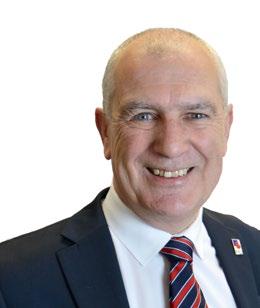
DIRECTOR OF BRITAIN’S BRAVEST MANUFACTURING COMPANY
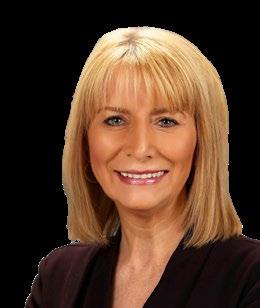
MICHELLE
FERGUSON DIRECTOR
OF SCOTLAND’S BRAVEST MANUFACTURING COMPANY
Lisa Farmer joined RBLI in October 2015 as Director of Strategic Development with over 20 years of experience in fundraising, marketing and business development. Lisa spent 8 years at Young Epilepsy as Fundraising Director before becoming Director of Development and has been involved in major commercial developments including Loughborough University’s £40m fundraising campaign and two capital fundraising campaigns at Young Epilepsy.
Geoff Streetley joined RBLI in November 2012 as Head of Commercial and is now responsible for RBLI’s social enterprise, Britain’s Bravest Manufacturing Company. Geoff was previously the Chief Commercial Officer for a UK listed plc in the business services industry. Prior to this role, Geoff held senior commercial roles based both in the UK and internationally and has significant experience of dealing with both public and private sector organisations globally.
Michelle has held senior management positions within the media industry, television press and magazines and was a director for Scottish Sports Futures Charity. Before joining RBLI in 2018, she was Managing Director of successful social enterprise St Andrew’s First Aid Training and Supplies Ltd., leading the team as they gained Highly Commended at the UK National Business Awards. Michelle was also a Guest Lecturer at the University of Glasgow Business School in 2017.


The Trustees are pleased to present their annual directors’ report together with the financial statements of the Charity for the year ended 31 March 2019 which are also prepared to meet the requirements for a directors’ report and financial statements for Companies Act purposes.
The Charity registration number in England and Wales is 0210063. The Charity registration number in Scotland is SC048795. The Charity is also a limited company registration number 0158479. The Charity is a Public Benefit Entity.
The financial statements comply with the Charities Act 2011, the Companies Act 2006, the Memorandum and Articles of Association, and Accounting and Reporting by Charities: Statement of Recommended Practice applicable to charities preparing their financial statements in accordance with the Financial Reporting Standard applicable in the UK and Republic of Ireland (FRS 102) (effective 1 January 2015).
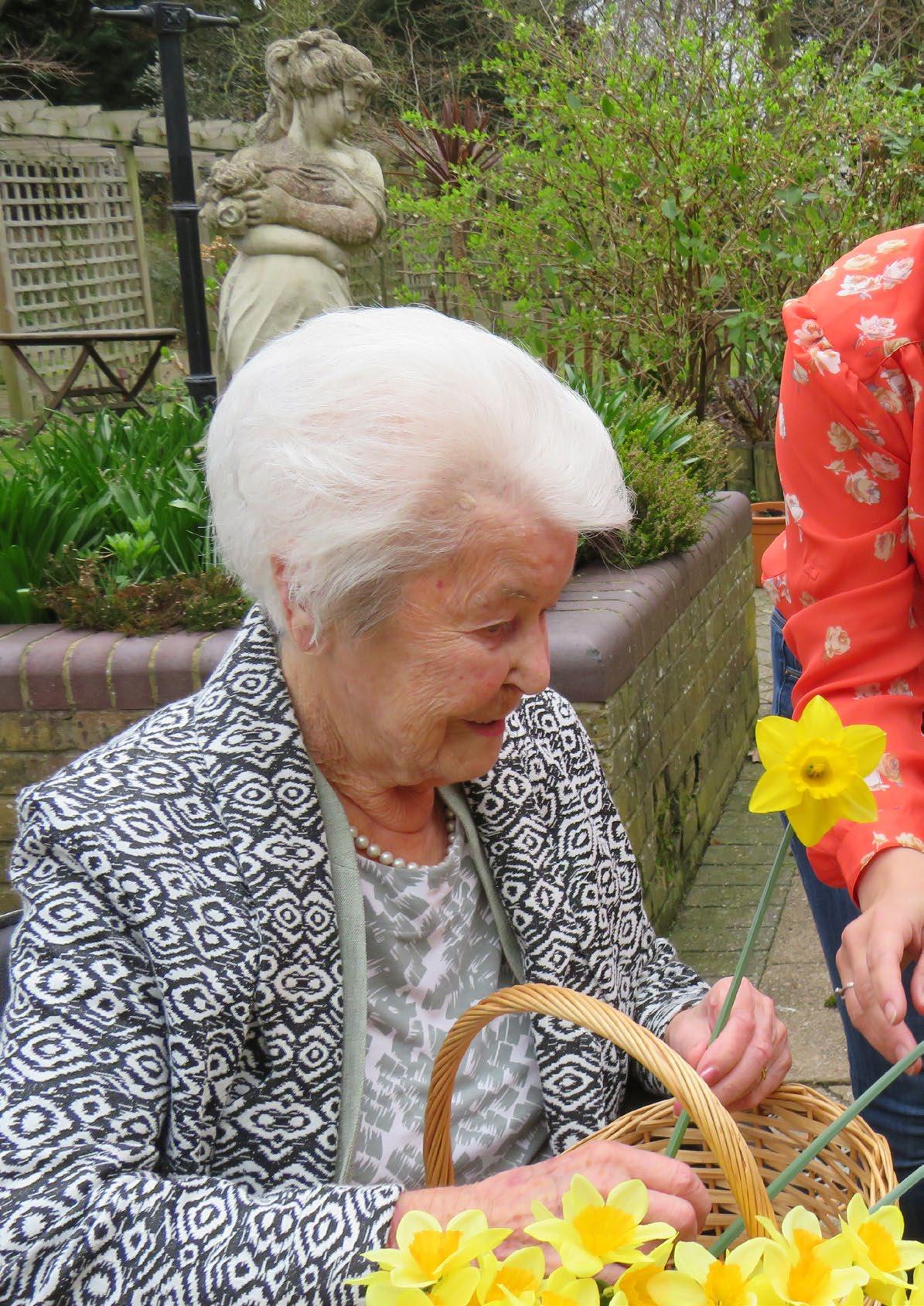
The primary objectives of the Charity are to support people with disabilities, health conditions or other social disadvantage to develop independence through the following activities:
1
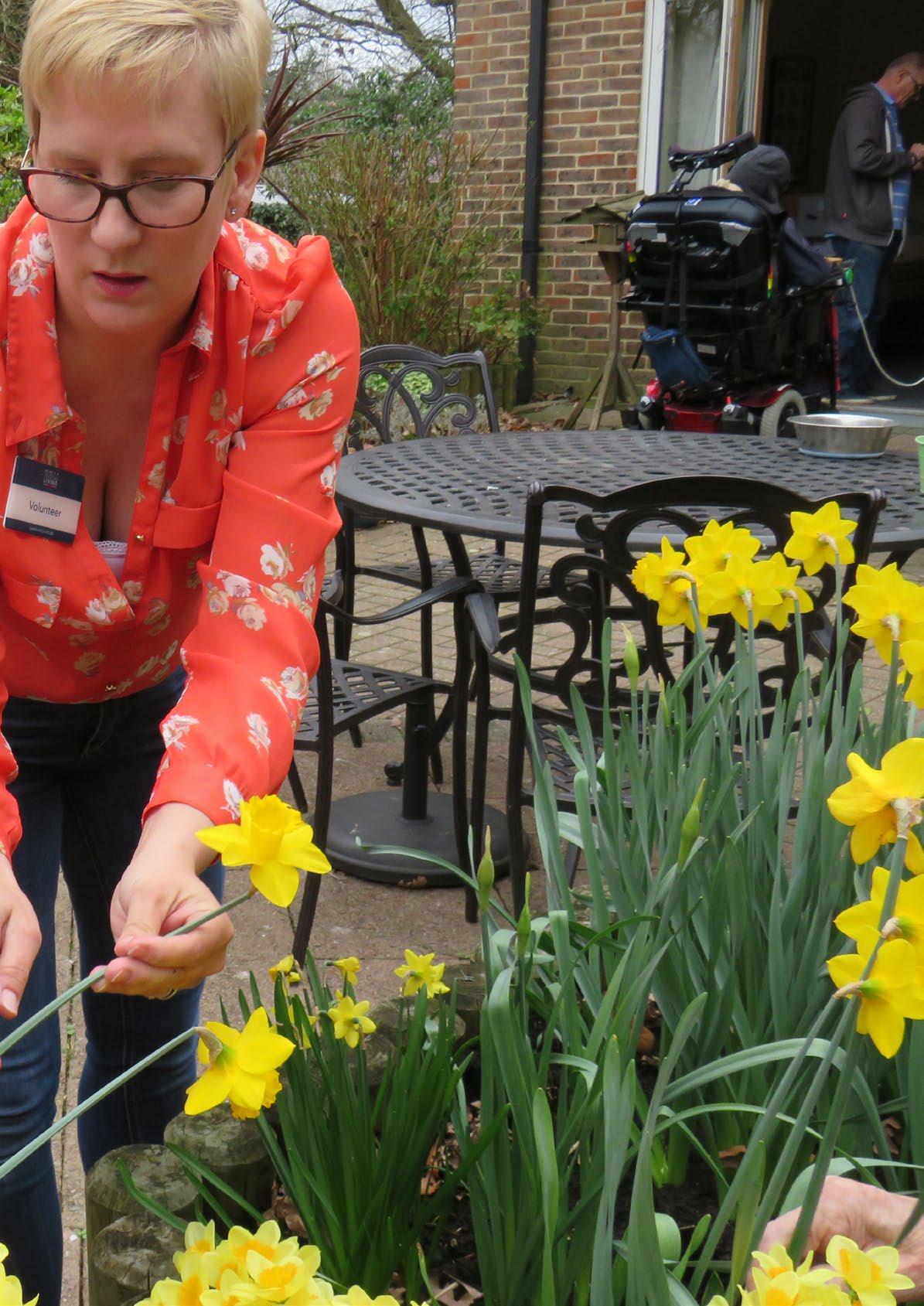
2
The provision of welfare, healthcare and housing mainly for members of the ex-Service community.
3
The provision of employment and development opportunities through social enterprise and LifeWorks employment support outreach programmes.
Supporting unemployed, disabled, disadvantaged and other unemployed people to increase their independence, and participation, through meaningful employment.
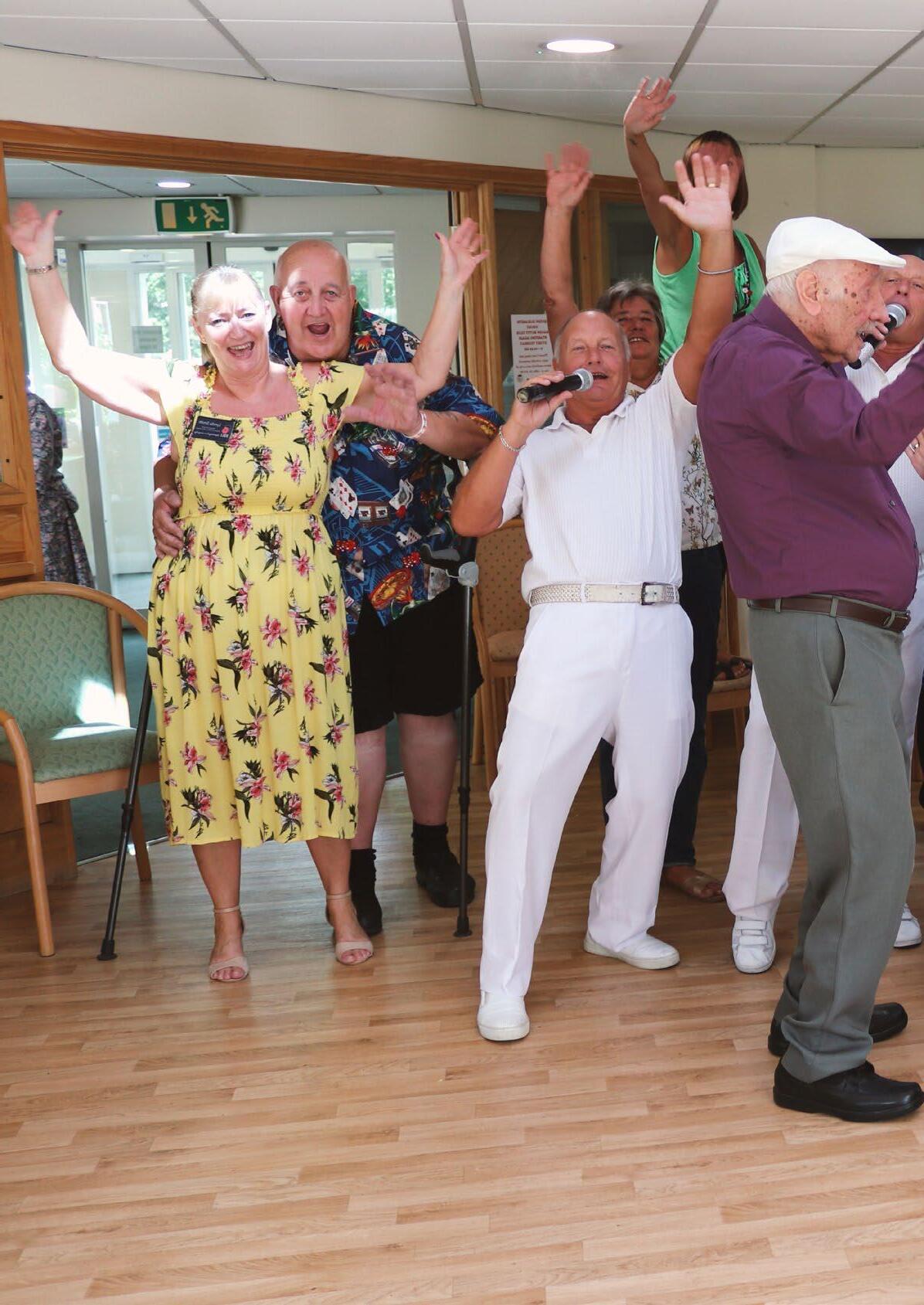
Delivering an integrated and comprehensive suite of care, accommodation and employment services and facilities on the RBL Village, Aylesford with a clear focus on supporting veterans and their families.
Delivering supported employment for individuals with disabilities and health conditions from the Armed Forces and wider community through our manufacturing social enterprise, Britain’s Bravest Manufacturing Company.
Delivery of a range of Government funded Employment Support programmes across Kent, Sussex and Surrey. The provision of disability assessment services via our Access to Work Programme is delivered for the Department of Work and Pensions.
Creating innovative new projects, products and outreach services to meet our objectives, and meet the needs of our beneficiaries more effectively and efficiently.
The design, development and ongoing delivery of RBLI’s innovative vocational assessment and development activities for the serving and veteran service community. This is delivered via our LifeWorks courses for veterans, spouses of serving personnel, and veterans in custody. In addition, RBLI delivers vocational assessments to wounded, injured and sick serving personnel as part of the Right Management Career Transition Partnership with the MOD.
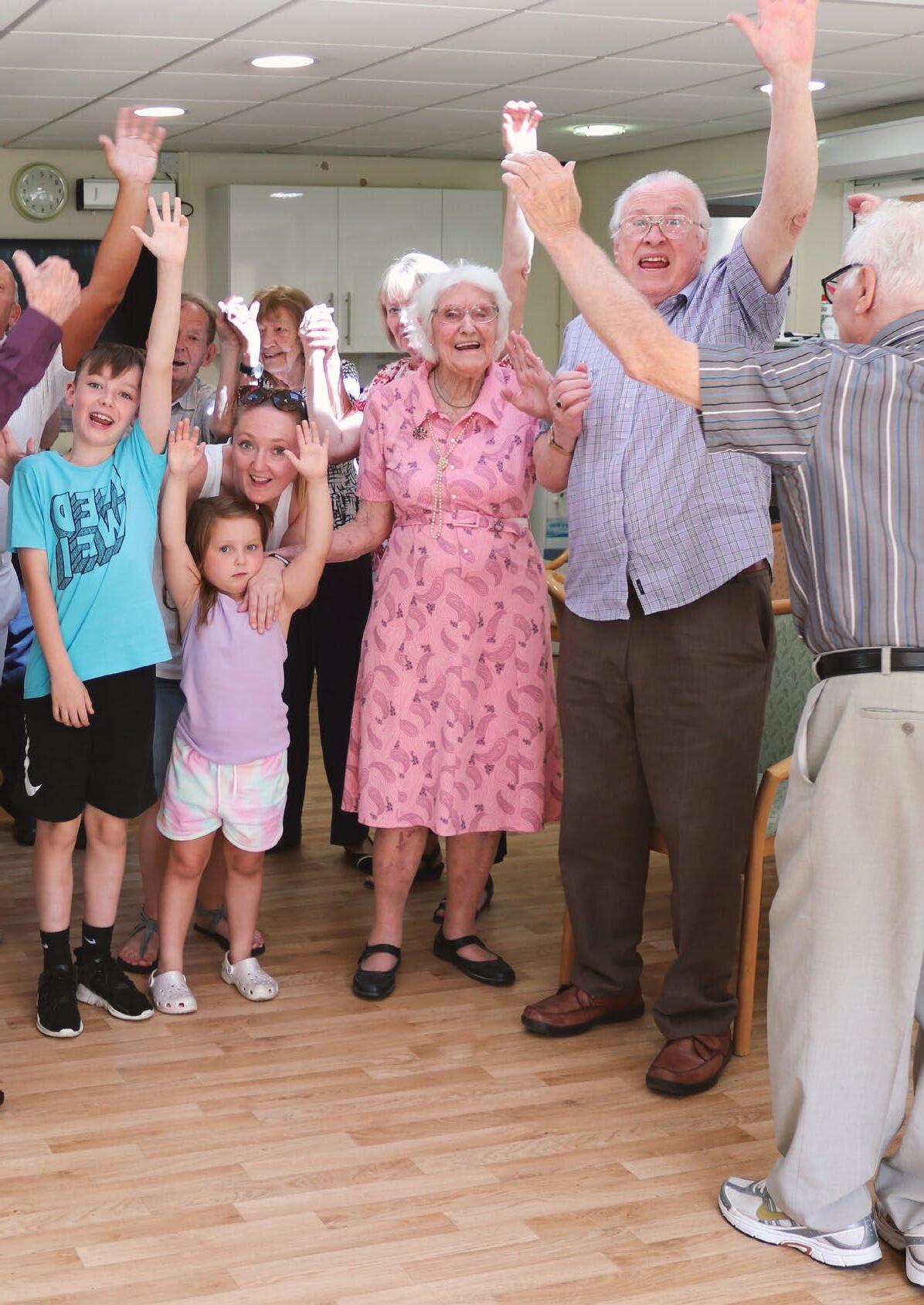
The Board of Trustees review the Charity’s strategic goals, activities and performance throughout the year and have considered the Charity Commission’s guidance on public benefit and are confident that the broad range of services and support that the charity provides demonstrable public benefit to a very large number of beneficiaries. This report highlights some of the core work and achievements of the charity during the year.

During the year the Charity provided accommodation and care to more than 300 Veterans and their families on our village at Aylesford. In addition to accommodation provided the charity provides a full range of welfare, health and wellbeing services on the village, We are experiencing more and more demand for accommodation and care from the veteran community.
Having opened our awardwinning new apartments in 2017, we are now well advanced in delivering our exciting Centenary Village Development with our new Care Facility due to be completed in summer 2019 and building work scheduled to commence on a broad range of new accommodation facilities and a Community Centre in Autumn 2019.
Our training and vocational assessment services to the veteran and serving armed forces continue to excel. LifeWorks, our flagship programme, was recognised
in an independent study by the Learning and Work Institute to be highly effective at helping more than 80% of all participants move onto work or further education.. During the year the programme was delivered nationally across the country and internationally at armed forces garrisons. In addition to LifeWorks we continue to deliver our Vocation Assessment Course for the MOD at garrison facilities across the UK.
The Charity continues to operate a range of Welfare to Work Programmes via our Employment Solutions Division. We deliver Work Programme across a large part of Kent and Sussex along with a number of Big Lottery and European Social Fund funded projects designed to help the longterm unemployed.
The Access to Work Assessment Contract continues to perform very well, providing workplace assessments to nearly
10,000 disabled employees throughout the UK.
Our Kent and Surrey based manufacturing division Britain's Bravest Manufacturing Company continues to provide employment opportunities for a range of veterans, disabled and able bodied staff.
In 2018 RBLI are proud to have launched a new manufacturing operation, Scotland's Bravest Manufacturing Co.
This initiative is a collaboration with the Erskine Charity in Scotland and will provide employment for up to 100 veterans at the Erskine facility 14 miles west of Glasgow.
The Scottish Charity Commission confirmed registration of this new initiative mid 2018 and the team are already having some fantastic success in winning contracts and providing work to a number of veterans.

During the year the Charity generated income of £22.3m (2018 £17.7m).
Donations at £4.5m reflect a highly successful year for our fundraising activity, with great progress in securing funding for the Centenary Village Project. Employment Solutions improved by £753k, year on year reflecting growth into new contract areas in the Welfare to Work and Skills sector. RBLI Living our care and accommodation division generated £5.2m income, marginally down on the prior year.
Manufacturing at £7.8m was £2.3m higher than 2018, with the division fulfilling significant volumes of business for the Remembered Charity’s There But Not There (TBNT) initiative and the Royal British Legion’s Silent Soldier marking the centenary of the end of World War 1.
Total expenditure for the year was £20.4m (2018 £18.3m). Employment Solutions costs increased by £0.4m as the division expanded into skills and training. Manufacturing costs were £2.2m higher year on year, largely reflecting the increased costs for the TBNT initiative. Living costs decreased by £0.5m with higher costs being driven
by the increased demands to deliver high quality care and the cost inflation effect of the National Living Wage, being offset by reduced operating costs for divisional management during the year.
Overall our operating divisions produced a net income of £1.9m including donations.
Our investment fund increased in value by £231k in year and therefore the net income for the year was £2.2m (2018: Net expenditure for the year £826k).
In addition to the above, the 2019 financial statements include a £222k actuarial loss on the defined pension benefit scheme and therefore the net movement in funds for the year equates to £1.9m increase and therefore the Charity ends the year with funds of £24.8m an increase of just under 8.5% year on year overall, with the Charity’s Balance Sheet continuing to strengthen materially. Within this figure restricted funds have increased and unrestricted funds have reduced reflecting the funds secured for new development programmes.
Investment Powers and Policy Investment powers are governed by the Memorandum and Articles of Association and permit the Charity’s fund to be invested in a wide range of assets. No ethical investment restrictions are placed on the investment fund managers’ remit.
The Charity’s investments are held to achieve balanced long term growth and a level of investment income each year. Performance is measured against a long term target of CPI+3% per annum. Performance is also measured against a bespoke benchmark that reflects the fund asset allocation. During the year the fund performed marginally below target and benchmark.
The Board reviews fund performance at every board meeting. Management meet with our investment managers quarterly and the investment managers present and report to the board on an annual basis.
The reserve policy, reviewed annually by Trustees, is to hold a sum of money as a designated fund in 2 parts as follows:
An operating reserve equating to approximately 4 months working cash flow which equates to £5m
A reserve equating to the forecast cost to RBLI for planned future projects and developments, primarily accommodation and care facilities at Aylesford. This currently equates to £5m
Unrestricted funds totalled £15.8m (2018: £17.1m)
The operating reserve in a designated fund equates to £5m
The development reserve in a designated fund stands at £5m which includes £2m for the refurbishment of our existing care home Gavin Astor House and £3m for continuing developments elsewhere on the village including the Centenary Village Project.
The pension deficit reserve calculated as per FRS102 is £1.9m ( 2018 : £1.5m)
The general fund of £7.1m reflects the infrastructure and tangible fixed assets used by the charity to support our beneficiaries in Aylesford and Leatherhead.
Restricted Funds totalled £9m (2018: £5.7m)
In addition to the above, the unrestricted fund also includes a sum covering the investment fair value reserve which equates to the difference between the original cost of the investments and their market value.
Land and buildings shown on the balance sheet are shown at historical costs less depreciation and have not been restated at market value. The one exception to this is the Vanguard Trust properties that were transferred to RBLI in the year and are shown at Market Valuation as at 2018. The valuation was completed in September 2017 and we do not believe that the value would be
materially different in value as at March 2019. A professional valuation of all other land has not been done, however the Trustees believe that the market value is significantly higher than the book value which is negligible as it was transferred to the Charity in 1919.
The Trustees have reviewed the future plans for the Charity and this combined with the strength of the balance sheet and future funds already secured are confident that the Charity will remain a going concern for many years to come.
The Charity is a member of a multiemployer pension scheme with The Royal British Legion and The Poppy Factory.
The scheme is a defined benefit scheme. This scheme was closed to new entrants in 2002, but members are still accruing benefits. The scheme has a pension deficit, largely due to historic funding not achieving predicted returns required to ensure the scheme assets fully cover the liability. RBLI’s share of the deficit is £1.9m or approximately 16% of the total deficit as determined by our actuaries as part of the FRS102 Pension Liability Report
We have an agreed recovery plan with the Pension Scheme Trustees to fund the deficit over a 10 year period. The plan allows for a securitised charge over the Charity’s assets rather than a cash recovery plan. However, the recovery plan allows for a revision to the methodology subject to the future size of the scheme assets versus liabilities
The Charity operates a fundraising division (Supporting Britain’s Bravest). The division has specific teams that focus on corporate, community, legacy and grant based fundraising. Each team has a target that generates a level of both restricted and unrestricted funds. A major focus of the division is the centenary village campaign raising funds for the future development of the village at Aylesford.
We confirm that all solicitations are managed internally, without involvement of commercial participators. The day to day management of all income generation is delegated to the executive team, who are accountable to the trustees.
The charity is not bound by any undertaking to be bound by any regulatory scheme. During the year we have received no complaints relating to any fundraising activity.
Most of the fundraising we undertake with the general public are those community or sports based events where members of the public fundraise for us for a specific event that we may advertise for such purposes. We comply fully with GDPR legislation.
Plans for the future are covered in the Strategic Report
Governing Document
Royal British Legion Industries is a charitable company limited by guarantee and was set up on 3 September 1919 and known as Industrial Settlements (Incorporated). It is governed by Articles of Association which were last amended in September 2016.
Reference and Administrative Information
The Trustees in office during the year and at the date of this report, Senior Executives of the Charity, its principal places of business and its professional advisers are set out on page 3.
The Board of Trustees are responsible for the overall governance, policy and work of the Charity. The Members of Royal British Legion Industries (RBLI) can appoint up to a maximum of 12 Trustees for the year from one Annual General Meeting to the next. If a vacancy arises, the Trustees can co-opt a Member to fill a vacancy at any time.
Newly elected Trustees are given induction training on their duties as Members of the Board and on their responsibilities as Trustees. In addition, they receive a copy of the Charity’s Articles of Association, a copy of its latest reports and financial statements, details of the Senior Executives and their respective roles and details of future board meetings.
The Board governs the Charity within its Articles of Association and in line with its mission, charitable objectives and values. The Board provides overall policy direction and the management of the Charity is delegated to the Chief Executive and through him to the senior management team. The Board meets quarterly and papers are made available prior to board meetings including
business plans and budgets. Summary management accounts are reviewed by the Trustees at each Board meeting.
The Trustees confirm that reference has been made to the guidance contained in the Charity Commission’s guidance on public benefit of the Charities Act 2011, when reviewing the Charity’s aims and objectives and in planning future activities. The Trustees and Senior Executives are involved in the strategic planning and their recommendations are then considered by the Board.
In addition to the quarterly board meetings the Trustees also meet annually for a strategic review and planning day. The Board review existing operations of the charity and consider strategic options for the future. In addition to this the Board also consider their own effectiveness and practices. At this time the Board have not conducted a full charity governance code review, this is due to be concluded at the end of 2019.
Estates Development matters are considered and reviewed by the Estates Development Committee which is chaired by a Trustee and its recommendations are submitted to the Board of Trustees for its approval.
Care and Welfare matters are considered and reviewed by the Care and Welfare Committee which is chaired by a Trustee and its recommendations are submitted to the Board of Trustees for its approval.
The Trustees are responsible for preparing the Strategic report, the Report of the Trustees and the financial statements in accordance with applicable law and regulations.
Company law requires the Trustees to prepare financial statements for each financial year in accordance with United Kingdom Generally Accepted Accounting Practice (United Kingdom Accounting Standards and applicable law).
Under company law the Trustees must not approve the financial statements unless they are satisfied that they give a true and fair view of the state of affairs of the charity and of the incoming resources and application of resources, including the income and expenditure, of the charity for that period.
In preparing these financial statements, the Trustees are required to:
• select suitable accounting policies and then apply them consistently;
• make judgements and accounting estimates that are reasonable and prudent;
• state whether applicable UK Accounting Standards have been followed, subject to any material departures disclosed and explained in the financial statements;
• prepare the financial statements on the going concern basis unless it is inappropriate to presume that the charity will continue in business.
The Trustees are responsible for keeping adequate accounting records that are sufficient to show and explain the charity’s transactions and disclose with reasonable accuracy at any time the financial position of the charity and enable them to ensure that the financial statements comply with the Companies Act 2006. They are also responsible for safeguarding the assets of the charity and hence for taking reasonable steps for the prevention and detection of fraud and other irregularities.
Financial statements are published on the charity’s website in accordance with legislation in the United Kingdom governing the preparation and dissemination of financial statements, which may vary from legislation in other jurisdictions.
The maintenance and integrity of the charity’s website is the responsibility of the trustees. The trustees’ responsibility also extends to the ongoing integrity of the financial statements contained therein.
The Board of Trustees approve any relevant annual pay rise to all employees with the Senior Management Team receiving the same annual increase as all other employees.
When new members join the Senior Management Team, the Chairman or Vice-Chairman of the Board of Trustees are asked to approve relevant salaries and other compensation/rewards.
Out of cycle pay rises not covered by the annual process, require the approval of the Chief Executive and the Director of Finance and typically reflect a change of roles and responsibilities or a market change in a specific division or area of the Charity.
The Board are pleased to see RBLI being very well placed in terms of Gender Pay Gap reporting with the Charity comparing very well against the sector and most business across the UK.
Where appropriate, staff with revenue targets, benefit from a bonus system that rewards good performance. In year
21 people received such bonuses. This equates to 1.2% of total payroll cost for the year.
All staff are encouraged to join the current pension scheme which is a defined contribution scheme. The Charity contributes to the scheme and the contribution is determined by the individual employee contribution level.
The Charity operates a risk reporting matrix that is reviewed by the Board of Trustees at every Board meeting. The matrix is updated in real time as events or issues emerge and wherever possible alternative scenarios are evaluated and relevant action plans or strategies are developed to help plan through and mitigate any possible material risk that may emerge.
The major risks that could negatively and materially impact the Charity in the medium and long term are as follows:
• The Government removes the Supported Factory Grant used to support disabled employees in the Britain’s Bravest Manufacturing Co. The grant provides help and support for those employees with the most profound disabilities at both Aylesford and Leatherhead.
• The majority vote for the leave campaign for the UK to leave the European Union may have an adverse effect on the Charity at some time in the future. At this stage it is impossible to quantify any likely effect in either the Charity’s investments or those programmes that we deliver that are ESF funded.
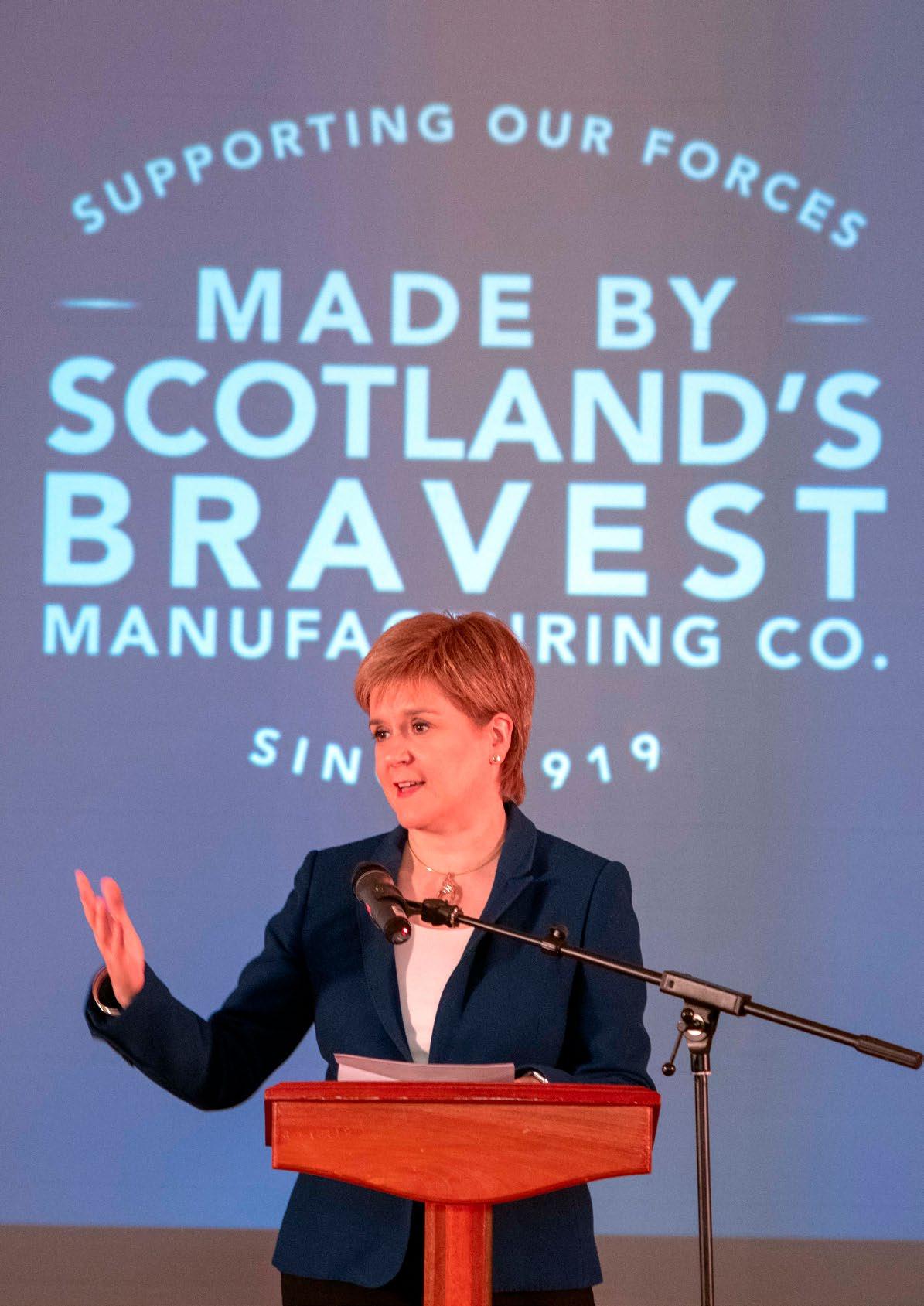
As permitted by the Articles of Association, the Directors/Trustees have the benefit of an indemnity which is a qualifying third party indemnity provision as defined by Section 234 of the Companies Act 2006. The indemnity was in force throughout the last financial year and is currently in force. The Charity also purchased and maintained throughout the financial year Directors’ and Officers’ liabilities insurance in respect of itself and its Directors/ Trustees.
Insofar as the Trustees are aware:
• there is no relevant audit information of which the charitable company’s auditors are unaware; and
• the Trustees have taken all steps that they ought to have taken to make themselves aware of any relevant audit information and to establish that the auditors are aware of that information
The Trustees are responsible for the maintenance and integrity of the corporate and financial information included on the charitable company’s website.
Legislation in the United Kingdom governing the preparation and dissemination of financial statements may differ from legislation in other jurisdictions.
A resolution proposing that BDO be appointed as auditors of the Charity will be put to the Board at the Annual General Meeting
Approved by the Board and signed by its order by

Stephen Kingsman DL CHAIRMAN
12th July 2019
Overall this year has seen a more than satisfactory financial performance across most programmes with continued growth and good performance.
The main financial challenges occurred in transitioning Employment Solutions with the move to a newly expanded office footprint and also within our high dependency care, where external factors, coupled with our own cultural change programme has produced cost pressures.
Overall the charity increased net funds by 8% notwithstanding a material increase in the charity’s FRS 102 pension deficit provision.
The Centenary Village build programme will start, as planned, in this our Centenary Year with the first £7m committed to the build.
The first turf will be cut in autumn 2019 and we will see 12 apartments, a 24 bed assisted living home and 4 family houses completed in 2020.
Prior to this we will open our new 15 bed care facility, this summer. We plan to convert our 50 bed care home into a 24bed dementia suite plus a 26 bed nursing suite in 2020.
Our commitment to providing a foundation for RBLI for the next 100 years is, with the help of many other organisations and individuals, coming to fruition.
On top of the capital build programmes we continue to develop our innovative STEP-IN programme which supports individuals to regain their independence within our unique, dynamic and multigenerational community which integrates: healthcare, social care, housing, training and employment. Our many partner organisations play a pivotal role in optimising the support provided.
Our strategic intent remains one of supporting more beneficiaries through growth, national reach, innovation, investment, inspirational leadership and influence. We strive for open and collaborative working with other charities, Government and commercial organisations. In the midst of our Centenary Year we remain energised to further develop our services and facilities and deliver even more for those who have served and have sacrificed.

Stephen Kingsman DL CHAIRMAN
12th July 2019
We have audited the financial statements of Royal British Legion Industries Limited (“the Charitable Company”) for the year ended 31 March 2019 which comprise the Statement of Financial Activities, the Balance Sheet, the Cash Flow Statement and notes to the financial statements, including a summary of significant accounting policies.
The financial reporting framework that has been applied in their preparation is applicable law and United Kingdom Accounting Standards, including Financial Reporting Standard 102 The Financial Reporting Standard applicable in the UK and Republic of Ireland (United Kingdom Generally Accepted Accounting Practice).
In our opinion, the financial statements:
• give a true and fair view of the state of the Charitable Company’s affairs as at 31 March 2019 and of its incoming resources and application of resources for the year then ended
• have been properly prepared in accordance with United Kingdom Generally Accepted Accounting Practice; and
• have been prepared in accordance with the requirements of the Companies Act 2006, the Charities and Trustee Investment (Scotland) Act 2005 and regulation 8 of the Charities Accounts (Scotland) Regulations 2006, as amended in 2010.
We conducted our audit in accordance with International Standards on Auditing (UK) (ISAs (UK)) and applicable law. Our responsibilities under those standards are further described in the Auditor’s responsibilities for the audit of the financial statements section of our report. We are independent of the Charitable Company in accordance with the ethical requirements relevant to our audit of the financial statements in the UK, including the FRC’s Ethical Standard, and we have fulfilled our other ethical responsibilities in accordance with these requirements.
We believe that the audit evidence we have obtained is sufficient and appropriate to provide a basis for our opinion.
We have nothing to report in respect of the following matters in relation to which the ISAs (UK) require us to report to you where:
• the Trustees’ use of the going concern basis of accounting in the preparation of the financial statements is not appropriate; or
• the Trustees have not disclosed in the financial statements any identified material uncertainties that may cast significant doubt about the Charitable Company’s ability to continue to adopt the going concern basis of accounting for a period of at least twelve months from the date when the financial statements are authorised for issue.
The other information comprises the information included in the Report of the Trustees, other than the financial statements and our auditor’s report thereon. The other information comprises: the Chairman and Chief Executive’s Review, the Strategic Report and the Report of the Trustees. The Trustees are responsible for the other information.
Our opinion on the financial statements does not cover the other information and, except to the extent otherwise explicitly stated in our report, we do not express any form of assurance conclusion thereon.
In connection with our audit of the financial statements, our responsibility is to read the other information and, in doing so, consider whether the other information is materially inconsistent with the financial statements or our knowledge obtained in the audit or otherwise appears to be materially misstated. If we identify such material inconsistencies or apparent material misstatements, we are required to determine whether there is a material misstatement in the financial statements
or a material misstatement of the other information. If, based on the work we have performed, we conclude that there is a material misstatement of this other information, we are required to report that fact. We have nothing to report in this regard.
Opinions on other matters prescribed by the Companies Act 2006
In our opinion, based on the work undertaken in the course of the audit:
• the information given in the Report of the Trustees, which includes the Directors’ Report and the Strategic report prepared for the purposes of Company Law, for the financial year for which the financial statements are prepared is consistent with the financial statements; and
• the Strategic report and the Directors’ Report, which are included in the Report of the Trustees, have been prepared in accordance with applicable legal requirements.
Matters on which we are required to report by exception
In the light of the knowledge and understanding of the Charitable Company and its environment obtained in the course of the audit, we have not identified material misstatement in the Strategic report or the Report of the Trustees.
We have nothing to report in respect of the following matters in relation to which the Companies Act 2006 and the Charities and Trustee Investment (Scotland) Act 2005 requires us to report to you if, in our opinion;
• proper and adequate accounting records have not been kept, or returns adequate for our audit have not been received from branches not visited by us; or
• the financial statements are not in agreement with the accounting records and returns; or
• certain disclosures of Directors’ remuneration specified by law are not made; or
• we have not received all the information and explanations we require for our audit.
As explained more fully in the Statement of Trustees’ responsibilities, the Trustees (who are also the directors of the charitable company for the purposes of company law) are responsible for the preparation of the financial statements and for being satisfied that they give a true and fair view, and for such internal control as the Trustees determines is necessary to enable the preparation of financial statements that are free from material misstatement, whether due to fraud or error.
In preparing the financial statements, the Trustees are responsible for assessing the Charitable Company’s ability to continue as a going concern, disclosing, as applicable, matters related to going concern and using the going concern basis of accounting unless the Trustees either intend to liquidate the Charitable Company or to cease operations, or have no realistic alternative but to do so.
Auditor’s responsibilities for the audit of the financial statements
We have been appointed as auditor under section 44(1)(c) of the Charities and Trustee Investment (Scotland) Act 2005 and under the Companies Act 2006 and report in accordance with the
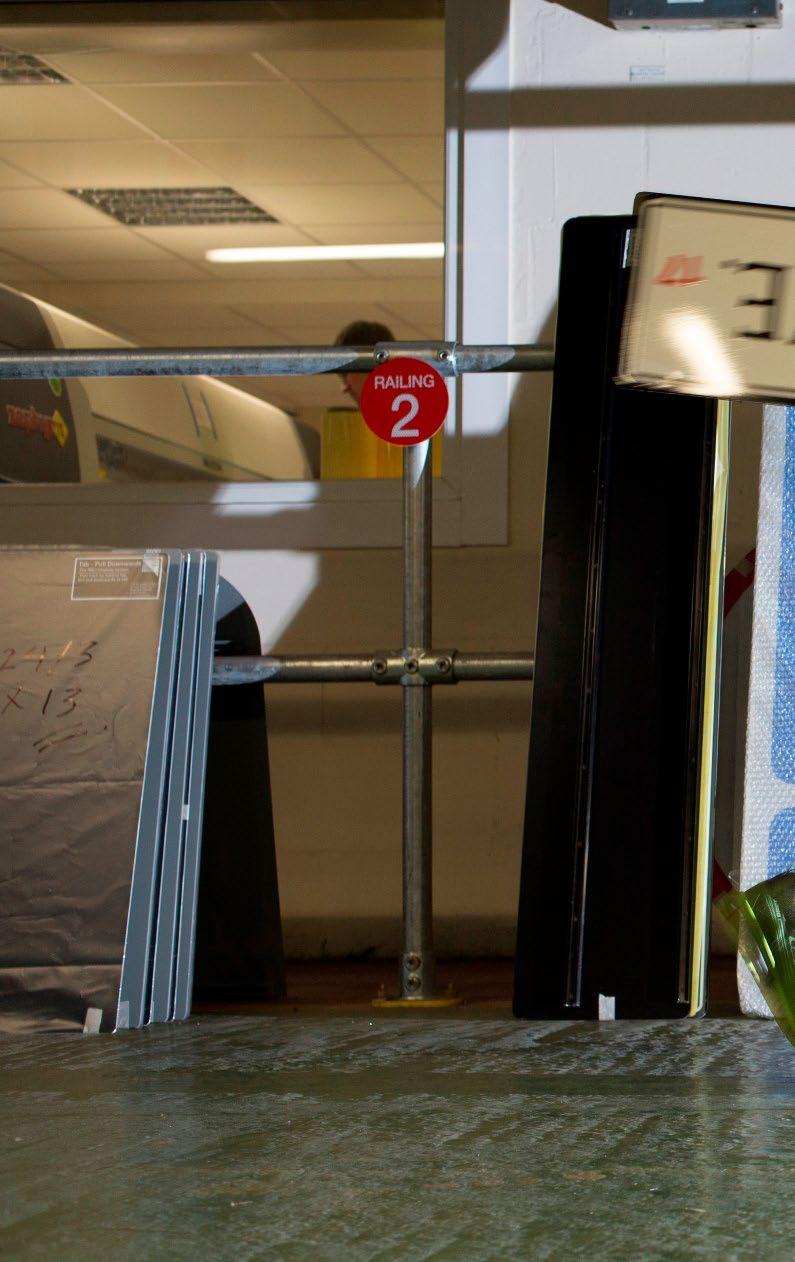
Acts and relevant regulations made or having effect thereunder.
Our objectives are to obtain reasonable assurance about whether the financial statements as a whole are free from material misstatement, whether due to fraud or error, and to issue an auditor’s report that includes our opinion.
Reasonable assurance is a high level of assurance, but is not a guarantee that an audit conducted in accordance with ISAs (UK) will always detect a material misstatement when it exists. Misstatements can arise from fraud or error and are considered material if, individually or in the aggregate, they could reasonably be expected to influence the economic decisions of users taken on the basis of these financial statements.
A further description of our responsibilities for the audit of the financial statements is located at the Financial Reporting Council’s (“FRC’s”) website at: https://www.frc.org.uk/ auditorsresponsibilities.
This description forms part of our auditor’s report.
Use of our report
This report is made solely to the Charitable Company’s members, as a body, in accordance with Chapter
3 of Part 16 of the Companies Act 2006, and to the Charitable Company’s trustees, as a body, in accordance with the Charities and Trustee Investment (Scotland) Act 2005.
Our audit work has been undertaken so that we might state to the Charitable Company’s members and trustees those matters we are required to state to them in an auditor’s report and for no other purpose.
To the fullest extent permitted by law, we do not accept or assume responsibility to anyone other than the Charitable Company, the Charitable Company’s members as a body and the Charitable Company’s trustees as a body, for our audit work, for this report, or for the opinions we have formed.

Jill Halford SENIOR STATUTORY AUDITOR
For and on behalf of BDO LLP
BDO LLP is a limited liability partnership registered in England and Wales (with registered number OC305127).
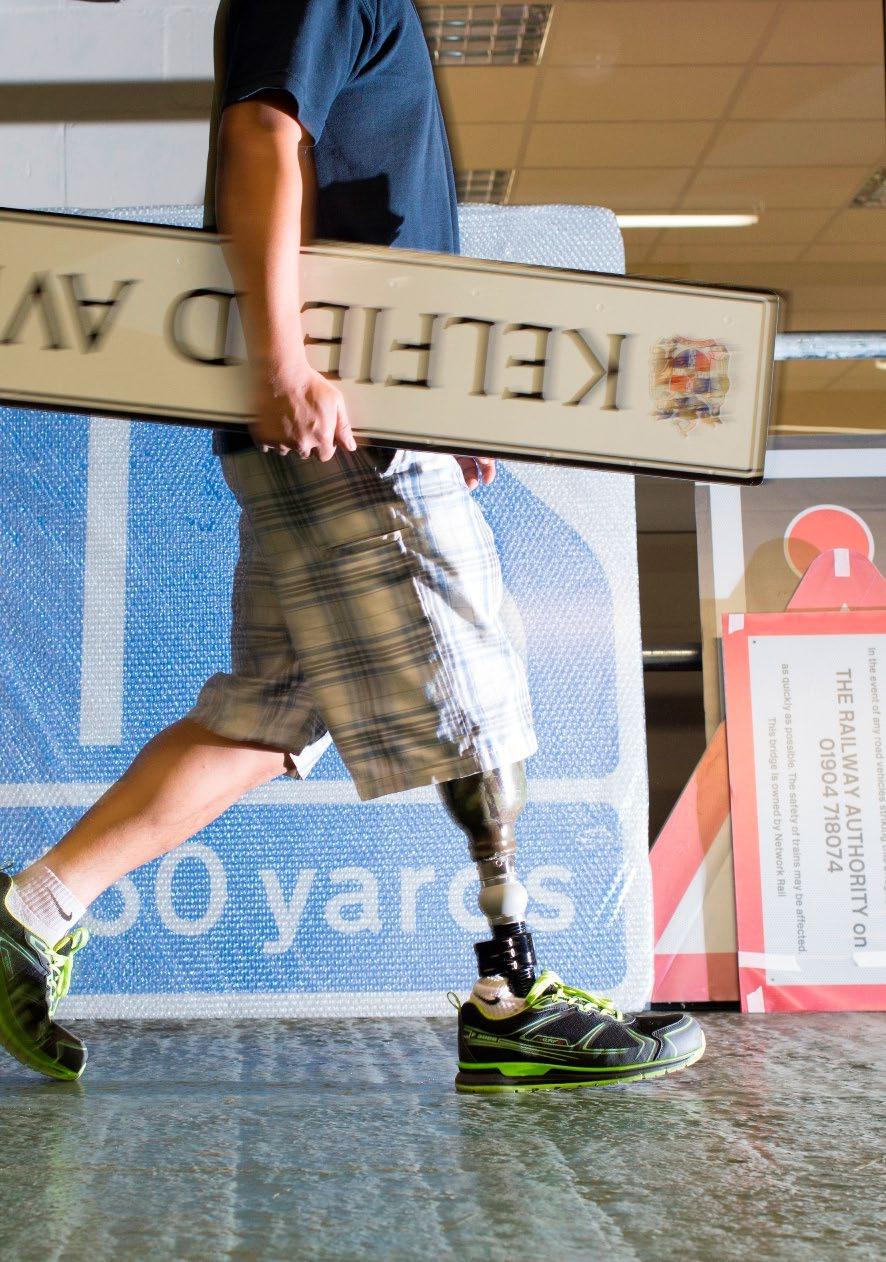
STATMENT OF FINANCIAL ACTIVITIES INCORPORATING THE SUMMARY INCOME & EXPENDITURE ACCOUNT FOR THE YEAR ENDING 31 MARCH 2019
All of the current year above results are derived from continuing activities The notes on pages 45 to 58 form part of these financial statements
BALANCE SHEET FOR THE YEAR ENDING 31 MARCH 2019
The notes on pages 45 to 58 form an integral part of these financial statements. The Financial Statements which comprise the Statement of Financial Activities, the Balance Sheet, the Statement of Cash Flows and the related notes were approved by the Board of Trustees on 12th July 2019 and were signed on its behalf by:-

Mr Stephen Kingsman

Mr A B Gulland
the year ended 31 March 2019
The Trustees have reviewed the future plans for the Charity and this combined with the strength of the balance sheet and future funds already secured are confident that the Charity will remain a going concern for many years to come. The Charity is a public benefit entity.
The principal accounting policies applied in the preparation of these financial statements are set out below. These policies have been consistently applied to all the years presented unless otherwise stated.
These financial statements are prepared on a going concern basis under the historical cost convention, as modified by the recognition of certain financial assets and liabilities measured at fair value.
The company has a wholly-owned subsidiary company, RBLI Contracts Limited. Consolidated financial statements have not been prepared as it has been dormant for several years and the activities of the subsidiary are not material to the group. Information concerning the subsidiary is set out in note 7.
The charity maintains the following funds:-
• Restricted - where the purpose to which the funds may be used has been restricted by the donors
• Designated - where the funds are unrestricted but the Trustees have designated them for a specific purpose
Funds have been set up and designated by the Board of Trustees and transfers between funds are agreed by the Trustees.
Charitable activity income is measured at the fair value of the consideration received or receivable and represents the amount receivable for goods supplied or services rendered, net of returns, discounts and rebates allowed and value added taxes.
Donations are recognised as income when received or when entitlement to receive has been established, receipt is probable, and the amount can be quantified with reasonable accuracy.
Gift Aid receivable is included when claimable. RBLI merged with Vanguard Trust during the year. The merger has been treated as a transfer of net assets, with the net amount being shown as income (i.e. donation) in the Statement of Financial Activities.
Grants are recognised in the Statement of Financial Activities when the conditions for entitlement have been met. Grants received before the conditions for entitlement have been met are deferred and included in creditors at year-end.
A subsidy is made to host companies who employ a disabled person under the terms of the Work Choice Programme. The subsidy arises on the employment of the disabled person and remains for the term of the employment contract. It is accounted for on an accruals basis.
The Charity operates two pension schemes, the Defined Benefit Scheme which was closed to new entrants in 2002 and the Group Personal Pension Scheme.
The Defined Benefits scheme, the assets of which are held and managed separately, is a multi-employer scheme. The actuaries have attributed scheme assets and liabilities to RBLI for the requirements of FRS102. The impact on the current year SOFA was an actuarial loss of £0.4m and a deficit on the balance sheet of £1.9m.
For the defined benefit section the amounts charged in expenditure are the current service costs and gains and
losses on settlements and curtailments. They are included as part of staff costs. Past service costs are recognised immediately in the Statement of Financial Activities if the benefits have vested.
If the benefits have not vested immediately, the costs are recognised over the period until vesting occurs.
The interest cost and the expected return on assets are shown as a net amount of other finance costs or credits adjacent to interest. Actuarial gains and losses are recognised immediately in ‘Other recognised gains and losses’.
The Defined Benefit schemes is funded, with the assets of the scheme held separately from those of the underlying employers, in separate trustee administered funds.
Pension scheme assets are measured at fair value and liabilities are measured on an actuarial basis using the projected unit method and discounted at a rate equivalent to the current rate of return on a high quality corporate bond of equivalent currency and term to the scheme liabilities.
The actuarial valuations are obtained at least triennially and are updated at each balance sheet date.
The resulting defined benefit asset or liability, net of the related deferred tax is presented separately after other net assets on the face of the balance sheet.
In addition the amount charged to the
Statement of Financial activities includes contributions payable to the Group Personal Pension Scheme in the year.
Short term benefits, including holiday pay, termination payments and other similar non-monetary benefits, are recognised as an expense in the period in which the service is incurred.
The company is a registered charity, and as such is entitled to certain tax exemptions on income and profits from investments, and surpluses on any trading activities carried on in furtherance of the charity’s primary objectives, if these profits and surpluses are applied solely for charitable purposes.
Cash and cash equivalents includes cash in hand, deposits held at call with banks, other short term highly liquid investments with original maturities of three months or less and bank overdrafts.
Bank overdrafts, when applicable, are shown within borrowings in current liabilities.
Investments are stated at fair value, using the bid price, and the value of both realised and unrealised gains are included in the Statement of Financial Activities within the relevant Funds.
Investments are subject to review for impairment when there is an indication of a reduction in their carrying value. Any impairment is recognised in the year in which it occurs.
Costs are recognised on an accruals basis in the period in which they are incurred.
Expenditure on raising funds includes the costs incurred in raising donation income and grant income, including apportioned support costs.
Expenditure on charitable activities comprises the costs incurred on charitable activities including apportioned support costs.
Where support costs cover more than one area of activity the costs are allocated to each activity based on revenue.
Costs of expenditure on raising funds includes the fees incurred in managing the Charity’s investments.
Annual rentals under operating leases are charged against income on a straight line basis over the lease term.
Raw materials, work-in-progress and finished goods are valued at the lower of cost or estimated selling price less cost to complete and sell.
Cost comprises the direct cost of production and the net attributable
proportion of works overheads appropriate to each department.
Cost is determined on an average cost method. Cost includes the purchase price including transport and handling directly attributable to bringing the stock to its present location and condition
Tangible assets are stated at cost (or deemed cost) less accumulated depreciation and accumulated impairment losses.
Cost includes the original purchase price, costs directly attributable to bringing the asset to its working condition for its intended use, dismantling and restoration costs.
Land is not depreciated. Depreciation on other assets is calculated, using the straight-line method, to allocate the depreciable amount to their residual values over their estimated useful lives, as follows:
• Freehold building - 2% straight-line
• Buildings plant - 7% straight-line
• Plant, Machinery, Fixtures and Fittings - 15% straight-line
• Motor vehicles - 25% straight-line
• Office equipment - 33% straightline
An annual impairment review is undertaken and adjustments are made where the adjustment is material.
Assets under construction represents expenditure incurred in creating assets. Depreciation takes place only after completion and capitalisation.
Expenditure below £1,000 per item does not qualify for capitalisation as a Fixed Asset as it is not considered to be material.
The Charity’s operations expose it to some financial risks that include the effects of changes in market interest rates and its liquidity position. The Charity has in place a risk management programme that seeks to limit adverse effects on the financial performance of the Charity.
The charity makes estimates and assumptions concerning the future. The resulting accounting estimates will by definition seldom equal actual results. The estimates and assumptions that have a significant risk of causing a material adjustment to the carrying amounts of assets and liabilities within the next financial year are addressed below.
At each balance sheet date the charity considers the recoverability of the cost of stock and the associated provisioning required.
When calculating the stock provision, management considers the nature and condition of the stock, as well as applying assumptions around anticipated saleability of finished goods and future usage of raw materials.
The charity makes an estimate of the recoverable value of trade and other debtors.
When assessing impairment of trade and other debtors, management considers factors including the current credit rating of the debtor, the ageing profile of debtors and historical experience.
The charity has an obligation to pay pension benefits to certain employees. The cost of these benefits and the present value of the obligation depend on a number of factors, including; life expectancy, salary increases, asset valuations and the discount rate on corporate bonds.
Management estimates these factors in determining the net pension obligation in the balance sheet. The assumptions reflect historical experience and current trends.
“The company has chosen to adopt Sections 11 and 12 of FRS 102 in respect of financial instruments.
(i)
Basic financial assets, including trade and other receivables, cash and bank balances are initially recognised at transaction price.
At the end of each reporting period financial assets are assessed for objective evidence of impairment. If an asset is impaired the impairment loss is the difference between the carrying amount and the estimated cash flows.
The impairment loss is recognised in profit or loss.
If there is a decrease in the impairment loss arising from an event occurring after the impairment was recognised, the impairment is reversed.
The reversal is such that the current carrying amount does not exceed what the carrying amount would have been had the impairment not previously been recognised.
The impairment reversal is recognised in profit or loss.
Investments which are not subsidiaries are initially measured at fair value, which is normally the transaction price. Such assets are subsequently carried at fair value and the changes in fair value are recognised in fair value reserve.
Financial assets are derecognised when
• (a) the contractual rights to the cash flows from the asset expire or are settled, or
• (b) substantially all the risks and rewards of the ownership of the asset are transferred to another party.
Basic financial liabilities include trade and other payables, and loans. They are initially recognised at transaction price. Trade payables are obligations to pay for goods or services that have been acquired in the ordinary course of business from suppliers.
Accounts payable are classified as current liabilities if payment is due within one year or less. If not, they are presented as non-current liabilities.
Trade payables are recognised initially and subsequently measured at transaction price as all of them are current.
Financial liabilities are derecognised when the liability is extinguished, that is when the contractual obligation is discharged, cancelled or expires.
Financial assets and liabilities are offset and the net amounts presented in the financial statements when there is a legally enforceable right to set off the recognised amounts and there is an intention to settle on a net basis or to realise the asset and settle the liability simultaneously.
Auditors’ remuneration was £45,000 (2018 provided by PwC: £46,000). In addition taxation services provided by BDO were £3,690 (2018 provided by PwC: £3,900)
Operating lease payments included in Resources Expended totalled £298,635 (2018 : £333,723). The loss on disposal of fixed assets was £5,723 (2018 : £21,322).
All the ten (2018: thirteen) employees earning over £60,000 p.a. participated in the company pension scheme, and pension contributions of £79,103 were made by RBLI in the year to 31 March 2019. (2018 : £89,560). The total remuneration of the above ten key ( 2018 : 13 ) management personnel was £1,119,860 (2018: £1,401,749). This includes redundancy pay of £0 (2018 : £48,940).
Total redundancy pay for the year including the above was £114,416 ( 2018 : £108,212). No remuneration is paid to the Trustees as they act on an honorary basis. Travel expenses were reimbursed to 2 Trustees (2018 : 1) and amounted to £850 in the year (2018 : £57).
The Charity is grateful for the large number of volunteers who have helped support the charity over the last 12 months. All areas of the Charity have benefited from this support ranging from admin support, job coaching, care etc. Governance costs for the year were £108,532 (2018: £100,797)
The Trustees believe that the
The difference between the fair value and the cost of investments is £585,000 (2018: £480,000) and represents the fair value reserve as required by the Companies Act 2006.
The directors believe the carrying value of the investments is supported by their underlying net assets.
The Company owns 100% of the issued share capital (being 2 shares of £1 each) of RBLI Contracts Ltd, a dormant company. There has been no income or expenditure in the subsidiary in the year (2018: none) and there are no capital and reserves at the year end (2018: none).
10. CREDITORS - AMOUNTS FALLING DUE WITHIN ONE YEAR
A charge over the Churchill Centre and the factory buildings at Aylesford has been granted to The Royal British Legion Pension Fund Trustees as security for the pension deficit liability and to support the Employers Covenant. This is a contingent liability and if the deficit is not eliminated by 2028 a cash injection / payment could be required.
UNRESTRICTED FUNDS
There are five unrestricted funds, two of which are designated:
The designated Future Projects and Developments Fund holds reserves of £5m (2018: £5m) for the development of the RBLI Village.
The designated Operating Cost Reserve provides a reserve covering four months of operating cost.
The General Funds reflects the tangible fixed assets used by the charity to provide services and support to beneficiaries.
The Pension Reserve reflects the balance of surplus or deficit on the defined benefit pension scheme and moves in line with annual valuations as per note 14.
The Fair Value Reserve reflects the balance of surplus or deficit on the revaluation of the investments as per note 6.
RESTRICTED FUNDS
There are two restricted funds: Capital and Revenue Grants hold restricted grants received for the development of property, plant and equipment and the provision of services to disabled people and Armed Forces veterans. There have been no transfers between any of the unrestricted or restricted funds.
EXPLANATION
The £700k Libor Grant is contributing to the development of a new 15 bedroom care facility and day care centre.
Royal British Legion Industries participates in two staff pension funds. The Defined Benefit Scheme (the Fund), and the Group Personal Pension Plan ( the GPPP), both operated in conjunction with The Royal British Legion.
A charge over the Churchill Centre and the factory buildings at Aylesford has been granted to The Royal British Legion Pension Fund Trustees as security for the pension deficit liability and to support the Employers Covenant. Contributions to the Group Personal Pension Plan in the year were £430,000 (2018 : £401,000). Contributions are limited to twice the level of the employees’ contribution. There were 351 employees participating in the scheme at 31 March 2019 ( 2018 : 351)
The Defined Benefit Scheme was closed to new entrants in 2002. During the year no contributions were made by RBLI (2018 : £NIL). The most recent formal scheme published actuarial valuation was carried out by First Actuarial LLP as at 1 April 2017.
The major financial assumptions used by the actuary for FRS102 purposes were:
In addition, the Trustees hold insured annuity policies. The value of these annuities has been excluded from both the assets and the liabilities since the liability is matched directly by an asset value of equal value. This is consistent with previous disclosures. The Fund does not invest in the sponsor’s own financial instruments, including property or other assets owned by the sponsor.
Donations and Grants of £5,000 or more, received in either current or prior year, are shown below. These are reported in the Statement of Financial Activites either under Charitable activities or under income from donations. The Vanguard Trust donation consisted of properties valued at £1,160,000 plus cash and investments.
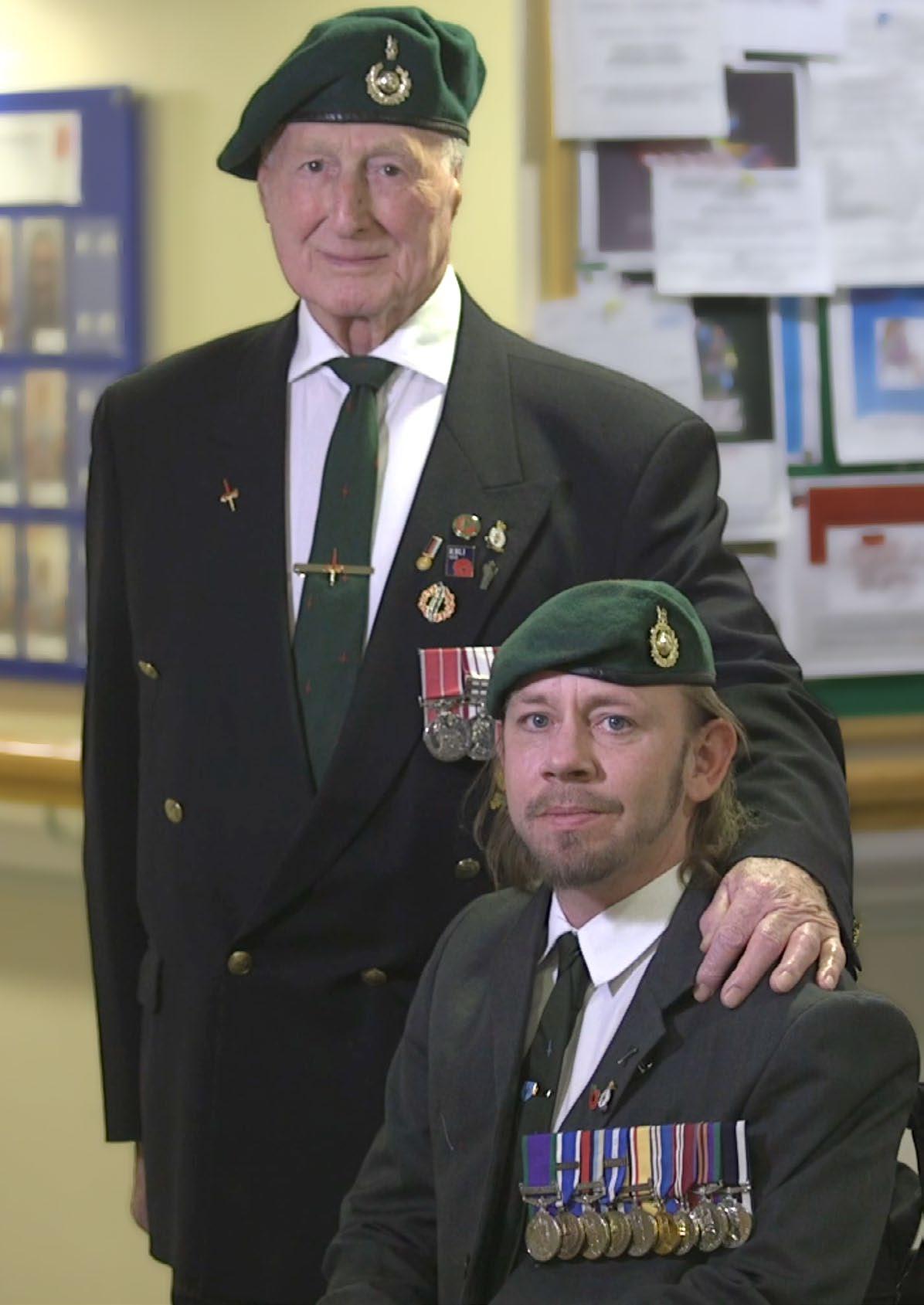
Chairman:
Mr S W Kingsman DL
Vice Chairman
Mr F Martin DL
Brigadier H H Kerr OBE
Mrs N Ahmed OBE DL
Mr A B Gulland
K Cearns OBE FCA FCCA
Mr A Watson (Appointed Sept 2018)
Mrs S Mason (Appointed September 2018)
Ms K Bosley (Resigned September 2018)
Mr D Montgomery
Mr D Crampton DL
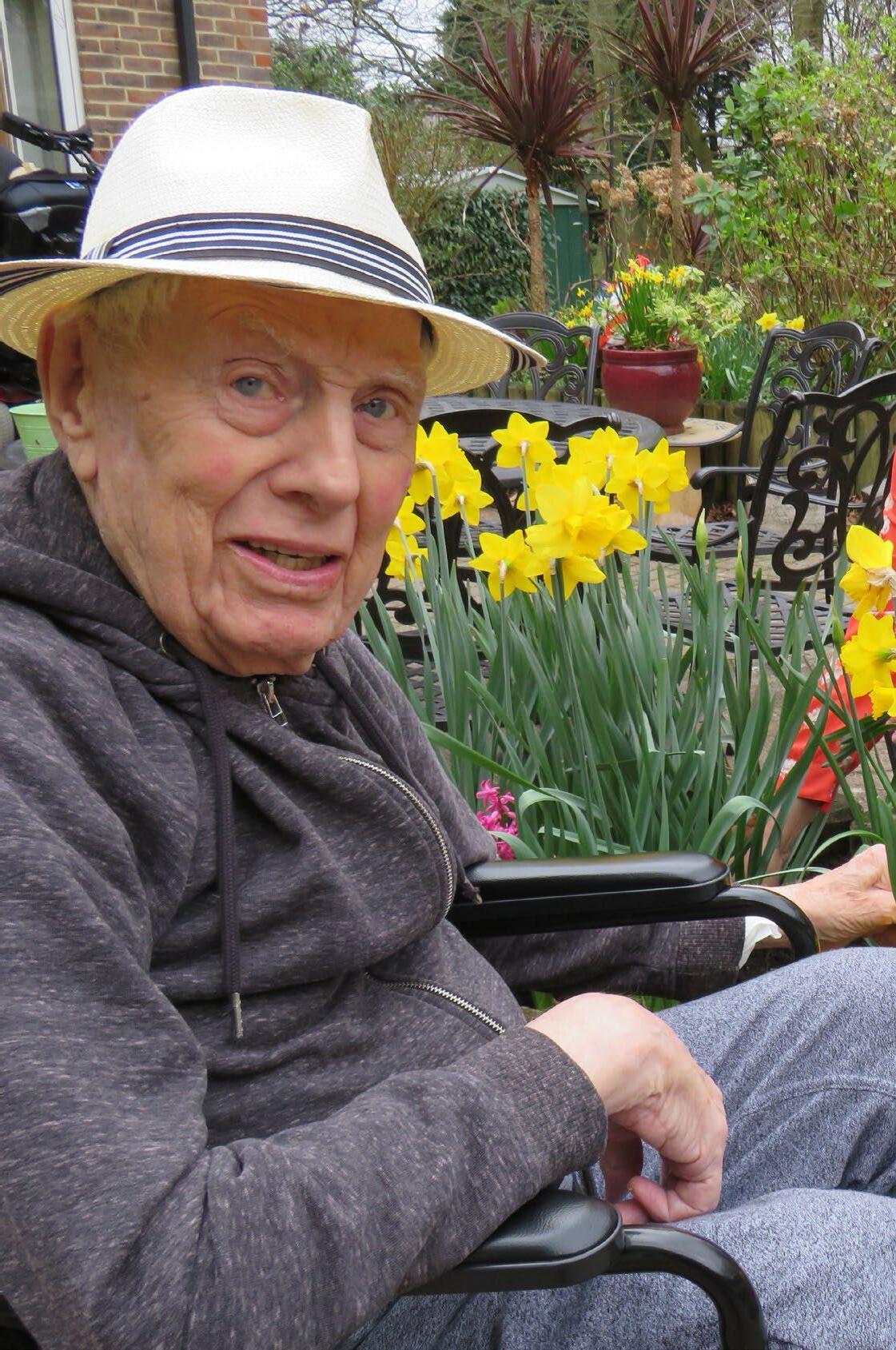
Chief Executive
Mr S F Sherry CMG, OBE
Director of Corporate Services & Company Secretary
Mr P Defraine ACMA
Director of Britain’s Bravest Manufacturing Co.
Mr G Streetley
Director of Strategic Development
Mrs L Farmer
Director of Scotland’s Bravest Manufacturing Co.
Miss M Ferguson
Director of Care & Welfare
Mr W Campbell-Wroe
Director of Employment Solutions
Mr A Milton
Mr S Woodward (Resigned April 2018)
Director of RBLI Living
Mr J Rudoni (Resigned April 2018)
Royal British Legion Industries Limited Hall Road
Aylesford ME20 7NL
TEL: 01622 795900 FAX: 01622 882195
Company Number: 0158479
Incorporated in England and Wales
Registered Charity Number England & Wales: 0210063
The charity is a public benefit entity
Registered Charity Number Scotland: SC048795
AUDITORS
BDO
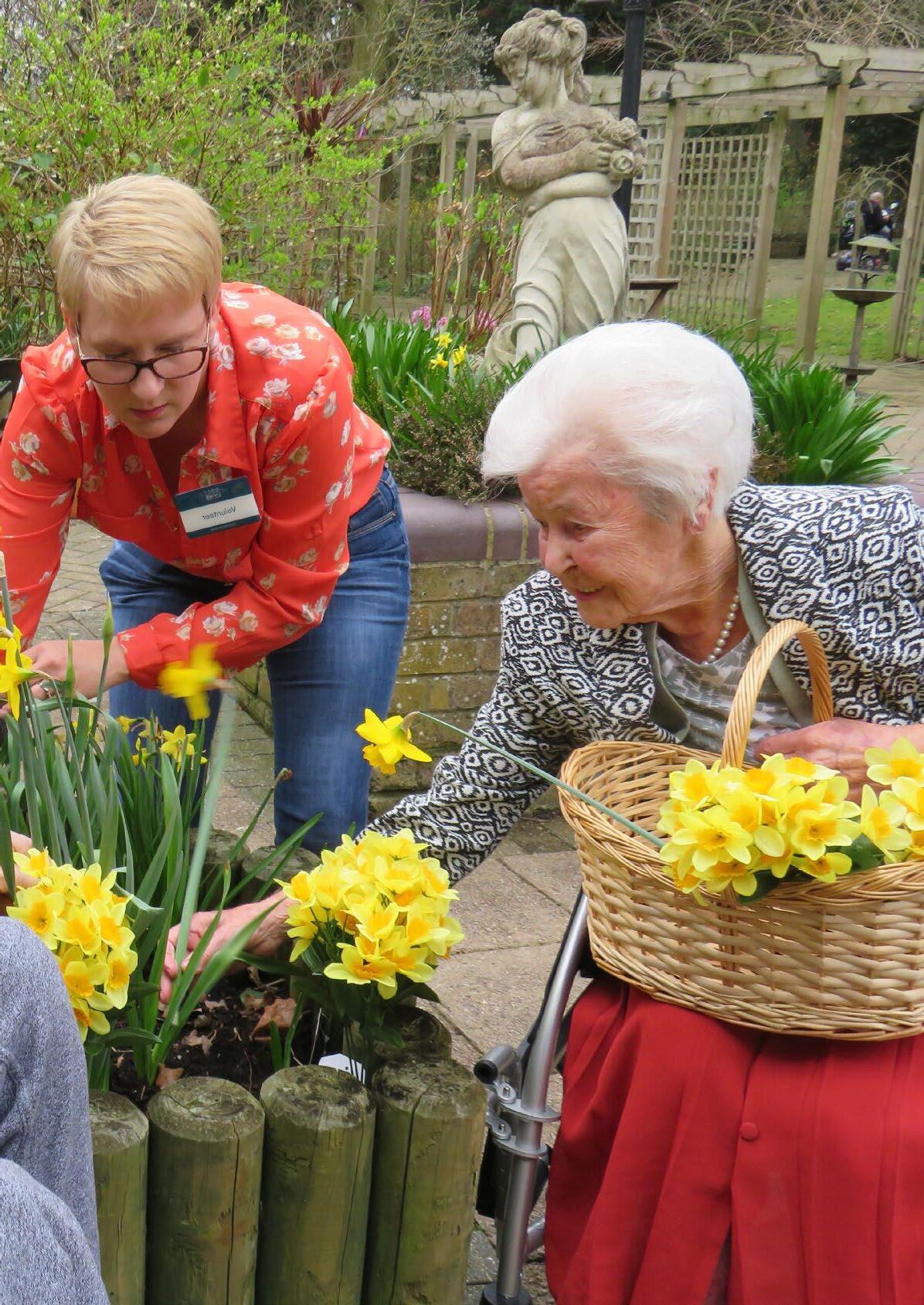
Barclays Bank Plc Corporate Banking Kent Team, 2nd Floor, 30 Tower View Kings Hill West Malling ME19 4UY INVESTMENT ADVISORS
Julius Baer Portfolio Managers Ltd 1 St Martin’s Le Grand London EC1A 1HQ
Thomson Snell & Passmore LLP 3 Lonsdale Gardens Tunbridge Wells TN1 1NX
Brachers LLP 59 London Road Maidstone ME16 8JH
Contact us
Royal British Legion Industries Hall Road
Aylesford ME20 7NL
01622 795900
marketing@rbli.co.uk rbli.co.uk
FUNDRAISING FOR US
Contact fundraising@rbli.co.uk
Mon to Fri 9am-5:30pm
VOLUNTEER FOR US
Contact volunteer@rbli.co.uk
Mon to Fri 9am-5:30pm
PARTNER WITH US
Contact fundraising@rbli.co.uk
Mon to Fri 9am-5:30pm
BECOME A FRIEND OF RBLI
Contact enquiries@rbli.co.uk
Mon to Fri 9am-5:30pm
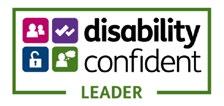
Keep in touch
rbli.co.uk wearelifeworks.org.uk britainsbravestmanufacturing.org.uk scotlandsbravest.org.uk
Royal British Legion Industries @RBLI
Royal British Legion Industries
Royal British Legion Industries